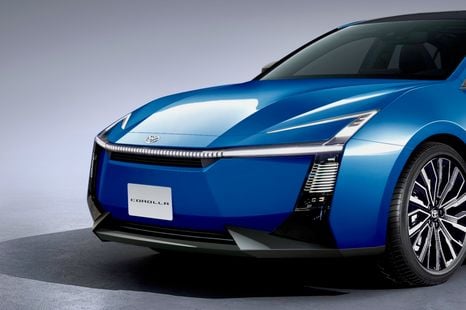

Ben Zachariah
2027 Toyota Corolla: What we know about the next-generation small car
18 Hours Ago
Volkswagen and Genesis have both crafted appealing alternatives to the large SUVs on offer from major luxury carmakers, but one has the edge.

Contributor
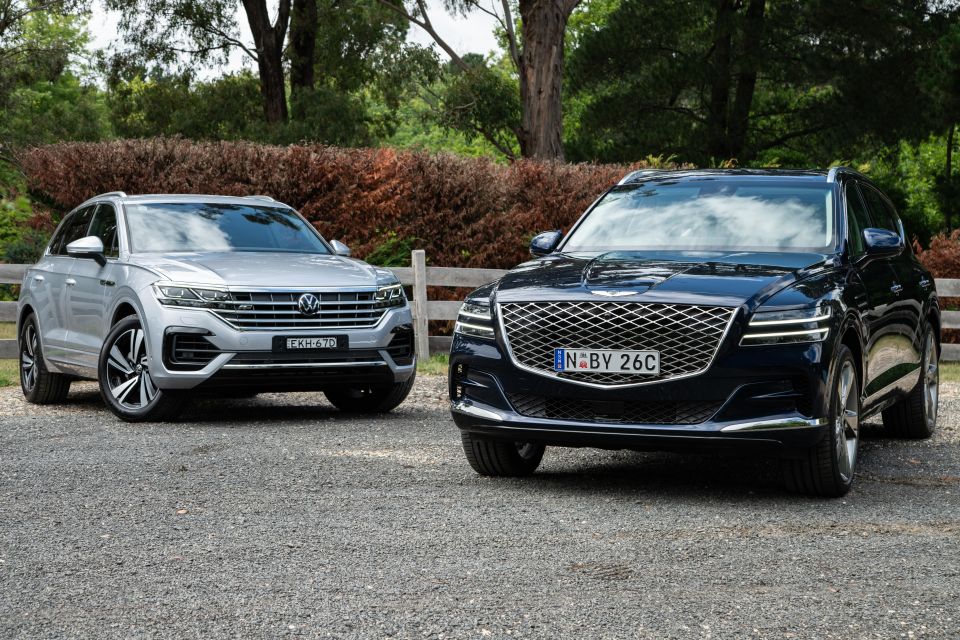

Contributor
The BMW X5, Mercedes-Benz GLE, and Audi Q7 are all excellent, but they’re also a bit common. Combined, almost 8000 were sold in Australia last year.
That’s where our two combatants wade in.
The Volkswagen Touareg has always been a slightly left-of-centre alternative to the luxury establishment. On test here is the 2021 model-year 210TDI R-Line, the most powerful six-cylinder option in the Touareg range.
As for its competitor? If the Touareg is a left-field rival to the establishment, the Genesis GV80 comes from a different planet entirely. Genesis might be a young brand with a small dealer network, but the GV80 is an impressive statement of intent.
Not only does it look like a Bentley Bentayga that’s been through the dryer, it has a lavish interior and a surprisingly broad spread of engine options. On test is the 3.0D AWD, second only to the 3.5T AWD petrol model in the GV80 hierarchy.
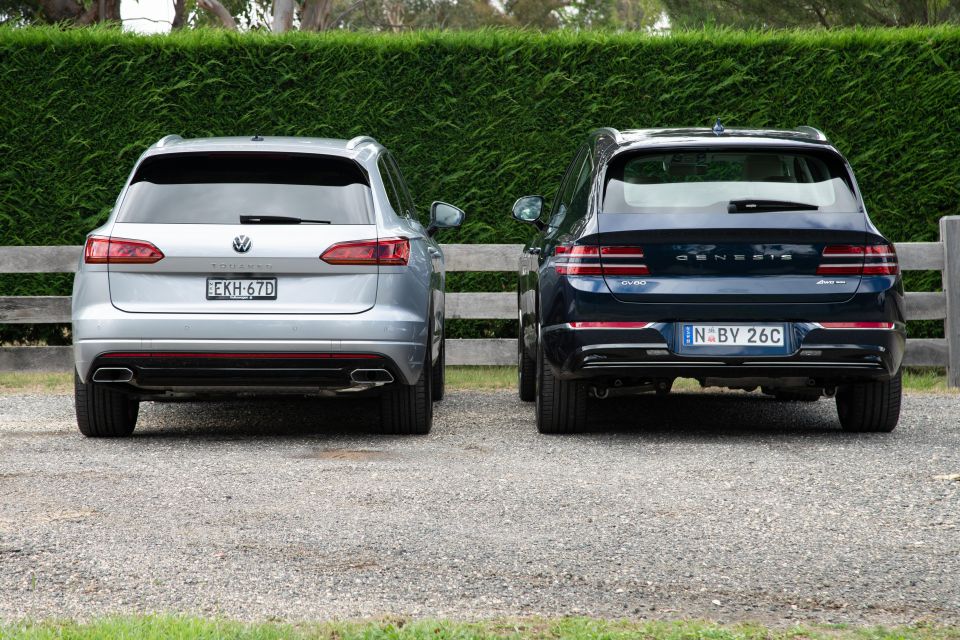
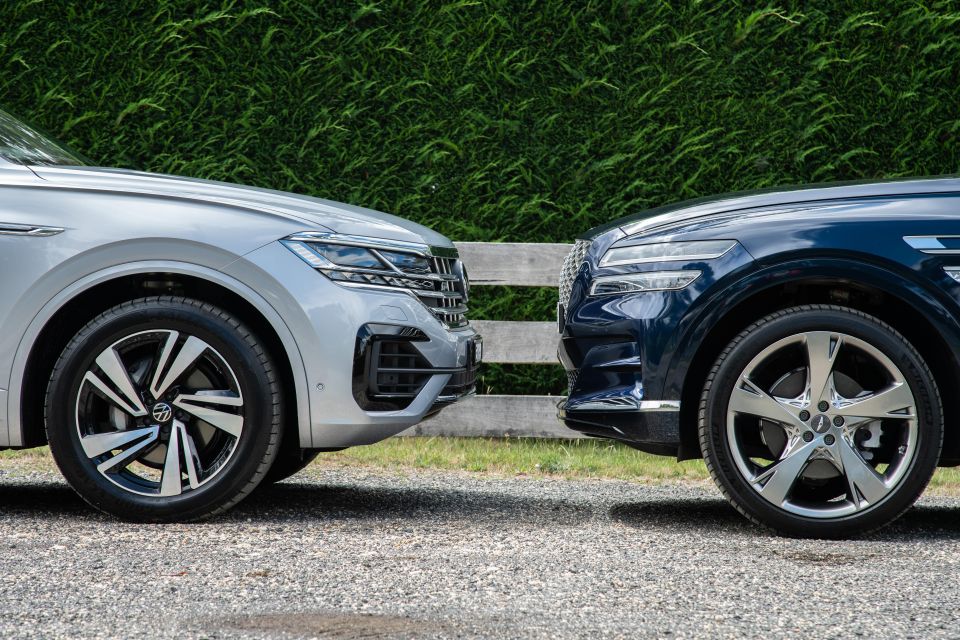
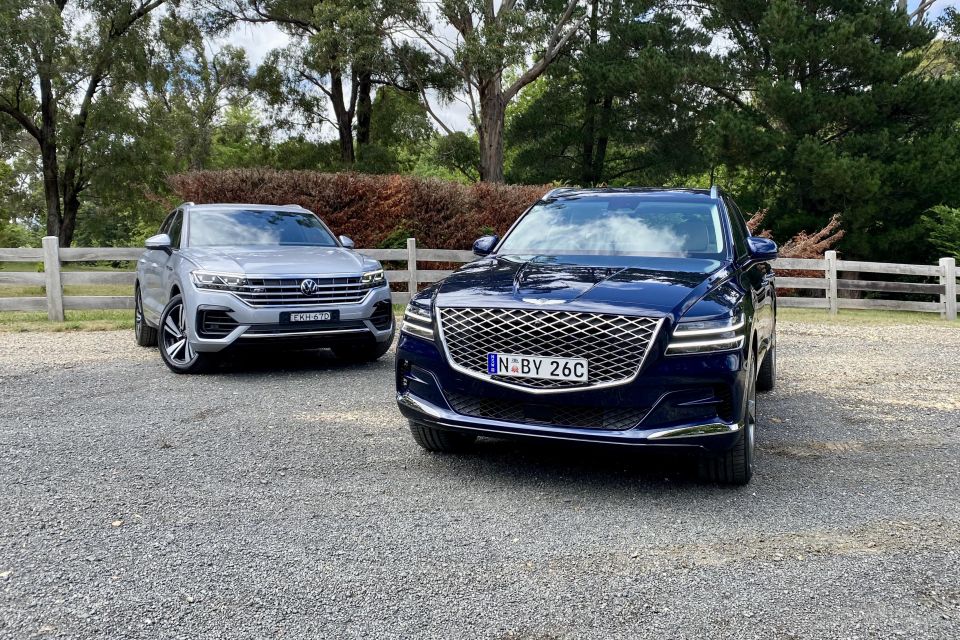
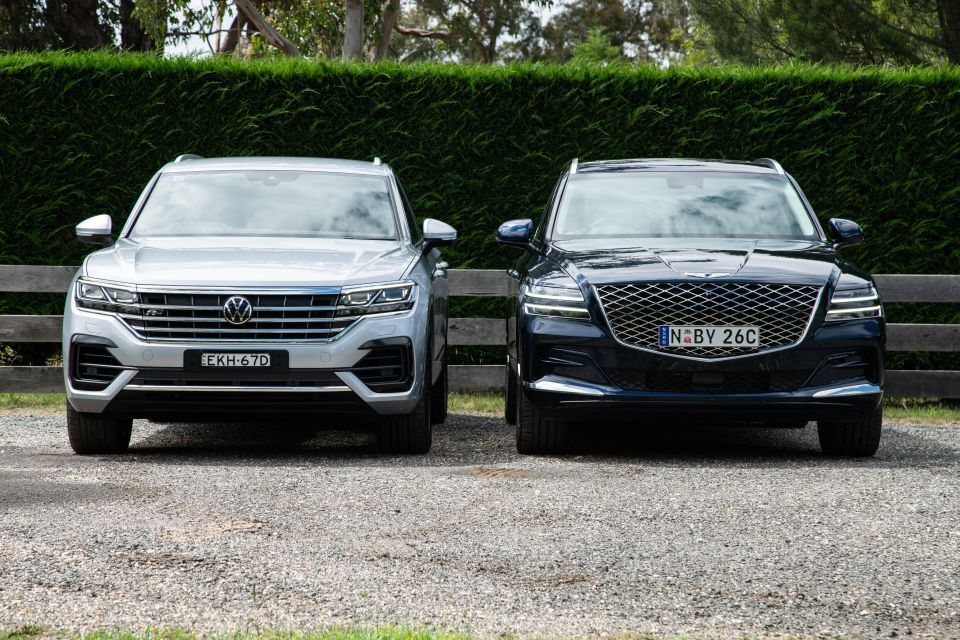
The Genesis GV80 3.0D is $103,600 before on-road costs. The GV80 range kicks off at $90,600 for the 2.5T RWD grade, and tops out at $108,600 for the twin-turbo petrol six.
Our Volkswagen Touareg 210TDI R-Line test vehicle comes in at $108,490 before on-road costs, making it the second most-expensive Touareg derivative behind the V8 flagship.
If you’re keen on the VW but have a tighter budget, the base 170TDI kicks off at $81,490 before on-road costs, and the more powerful 210TDI Elegance grade is $99,490.
On test:
There are also numerous extra-cost options to factor in that we’ll cover off in the next section.
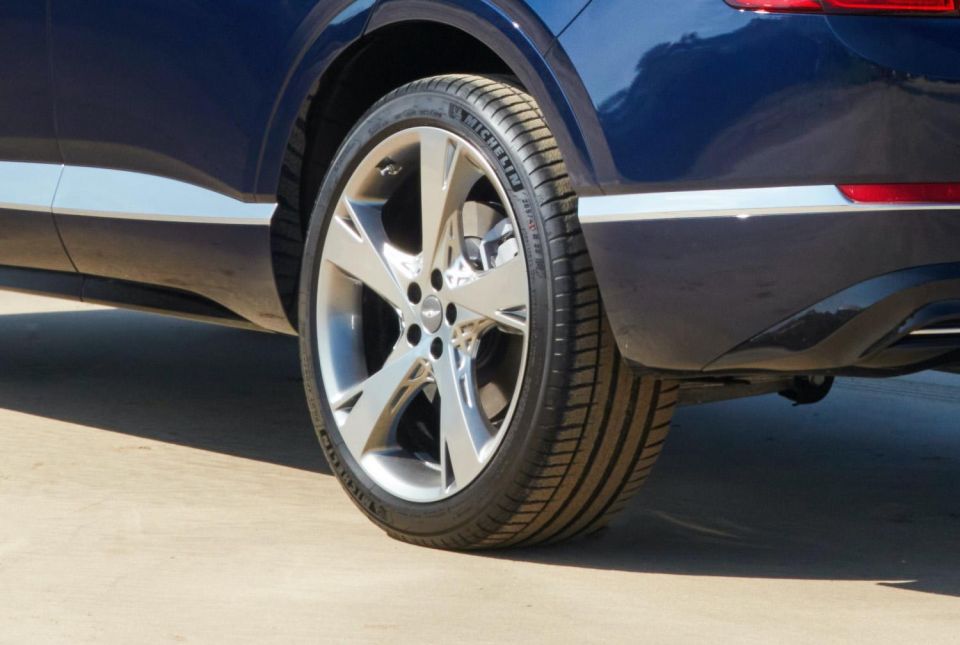
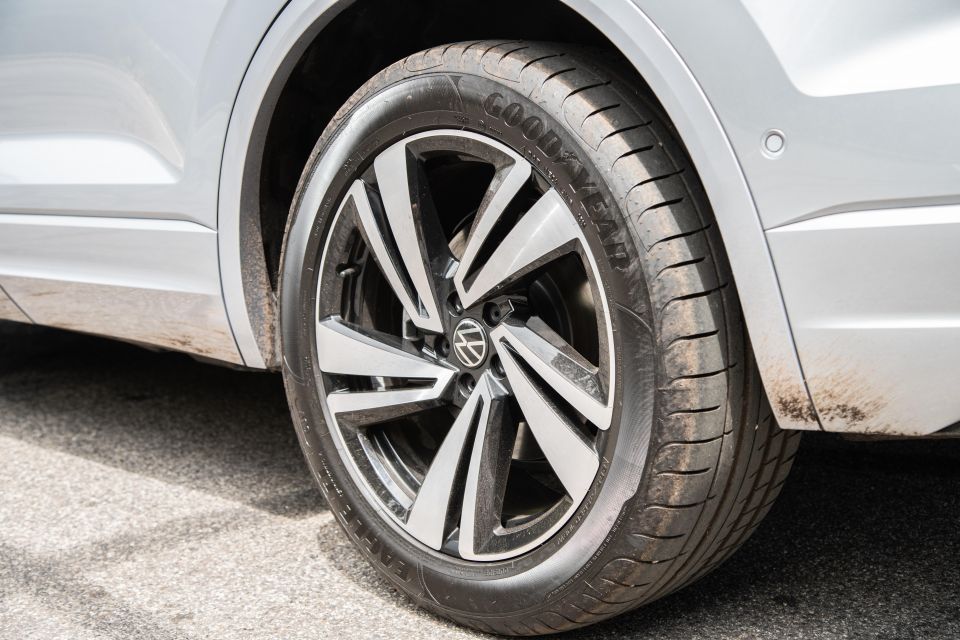
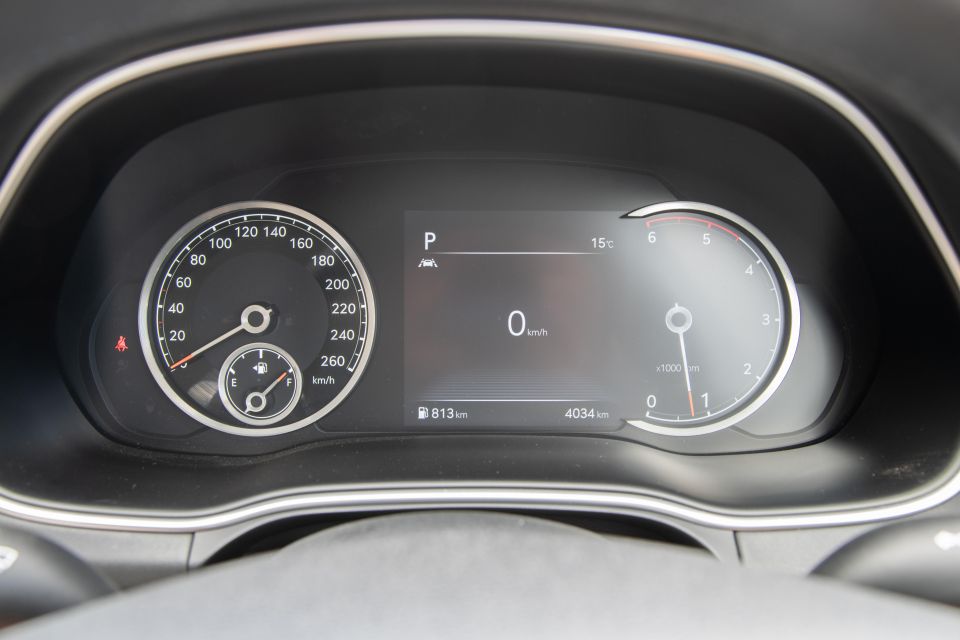
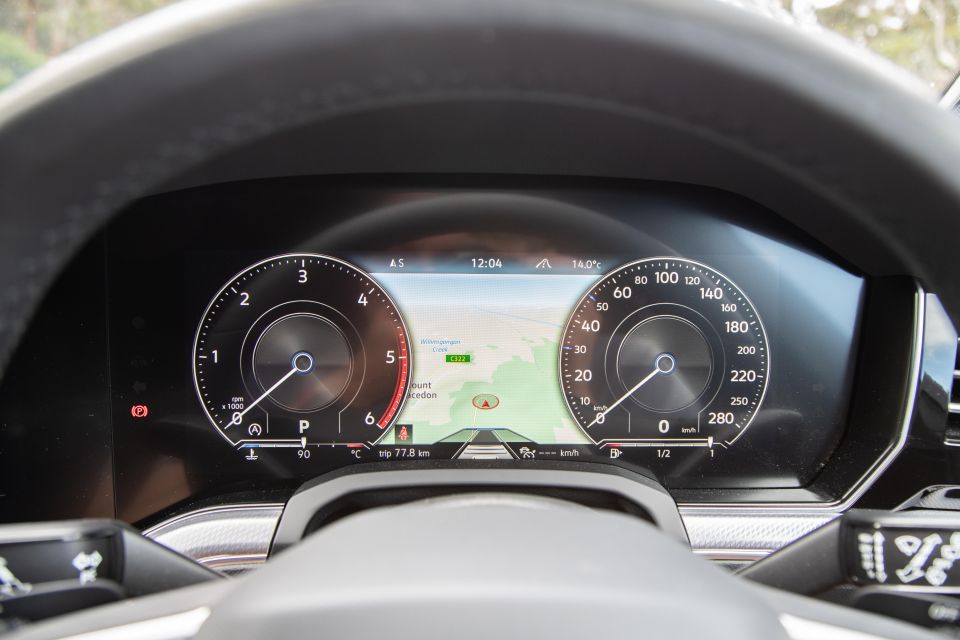
Neither of this pair are entry models, and as such come very generously specified.
Both the GV80 3.0D and Touareg 210TDI R-Line have proper leather seats with power adjustment, and heating and ventilation functions for those up front. The front seats in the Volkswagen also have numerous massage functions as standard.
Both also have powered tailgates, LED headlights with auto high-beam (the VW’s are clever Matrix LED units with adaptive beams), dual-zone climate control, satellite-navigation, wireless phone charging, surround-view cameras, keyless entry and start, interior ambient lighting, head-up displays, and adaptive cruise control.
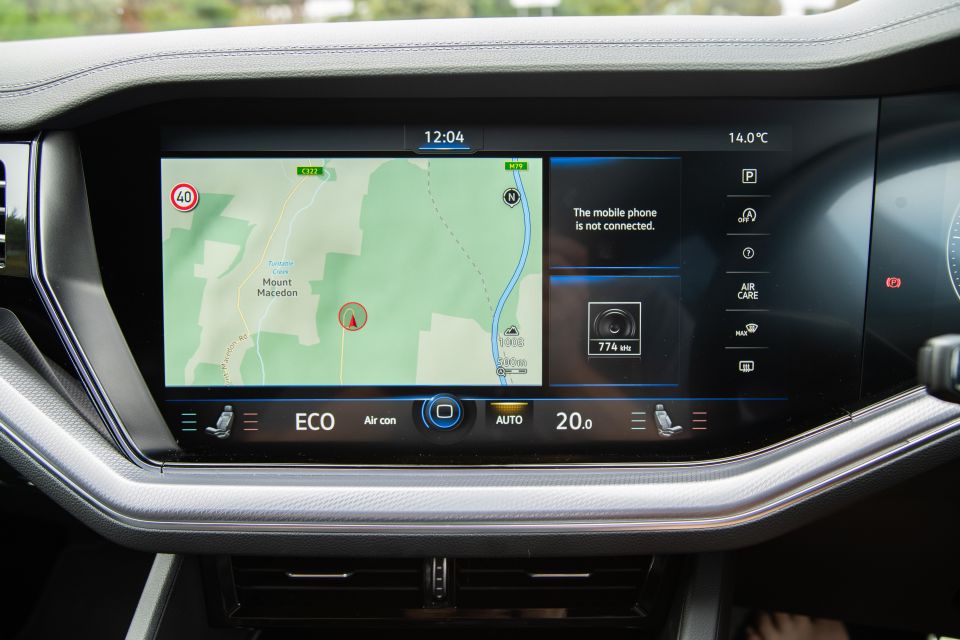
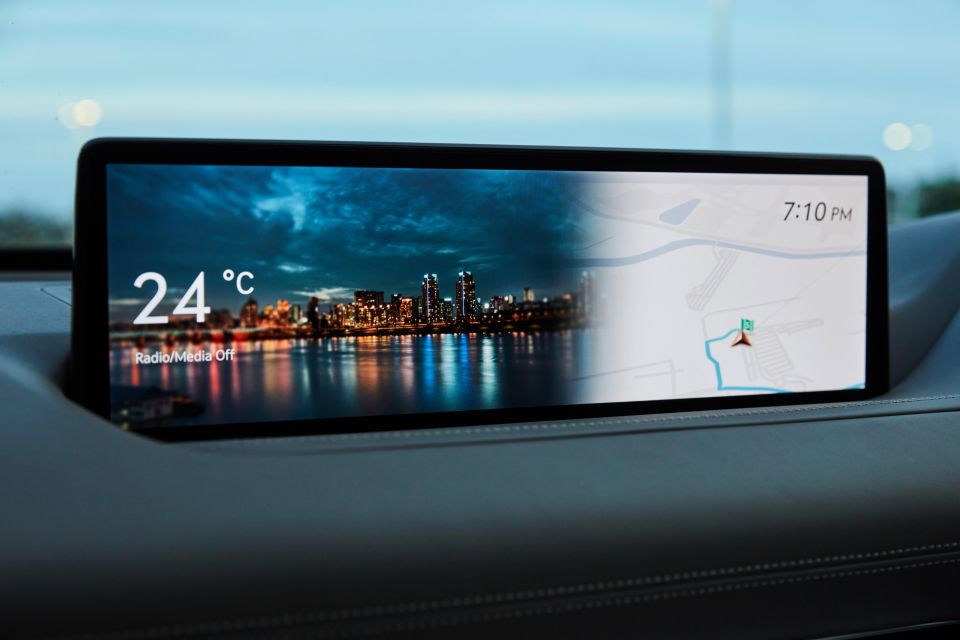
In terms of infotainment screens, both go above and beyond. The Genesis has a 14.5-inch widescreen, while the Volkswagen’s screen is 15 inches across. Only the Touareg has fully digital driver’s instruments though, whereas the GV80’s are half digital and half analogue.
Other differences worth noting?
The Genesis is the only car here with digital radio, and its standard 21 speaker sound system has more impressive specs than the Volkswagen’s standard eight-speaker setup. It also has 22-inch wheels (20″ on the Volkswagen), seven seats instead of five, and a dual-pane sunroof.
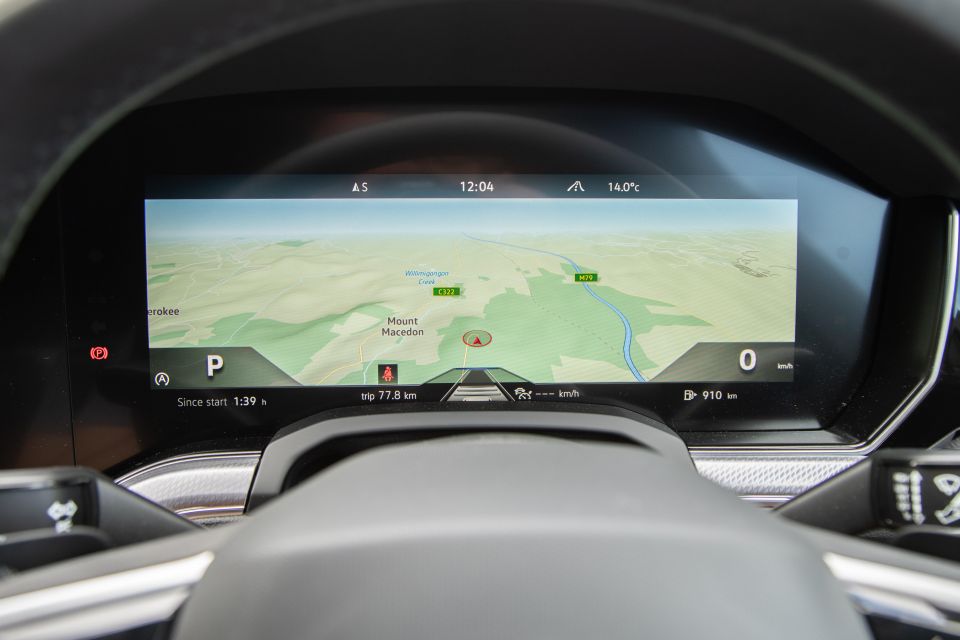
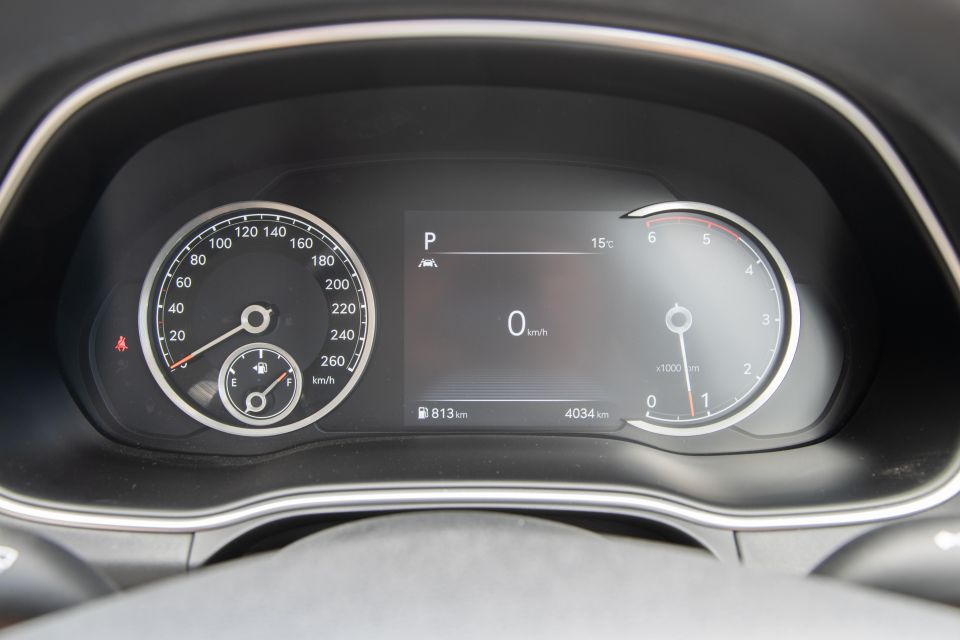
Volkswagen counters with some clever chassis technology the GV80 can’t match. It rides on air suspension capable of raising or lowering the body depending on drive mode, and it gets active anti-roll bars capable of propping the car up in corners for sharper handling.
Then there are options.
The Volkswagen’s $6500 Sound & Comfort Package added a pumped-up 14-speaker audio system, four-zone climate control, heated middle-row outboard seats, and Park Assist Plus software, among other add-ons.
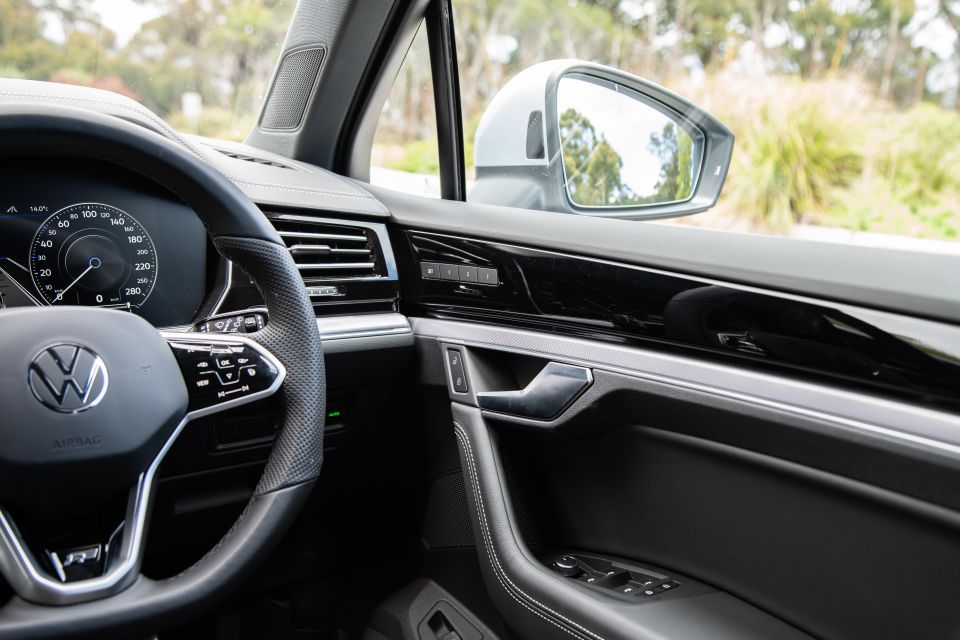
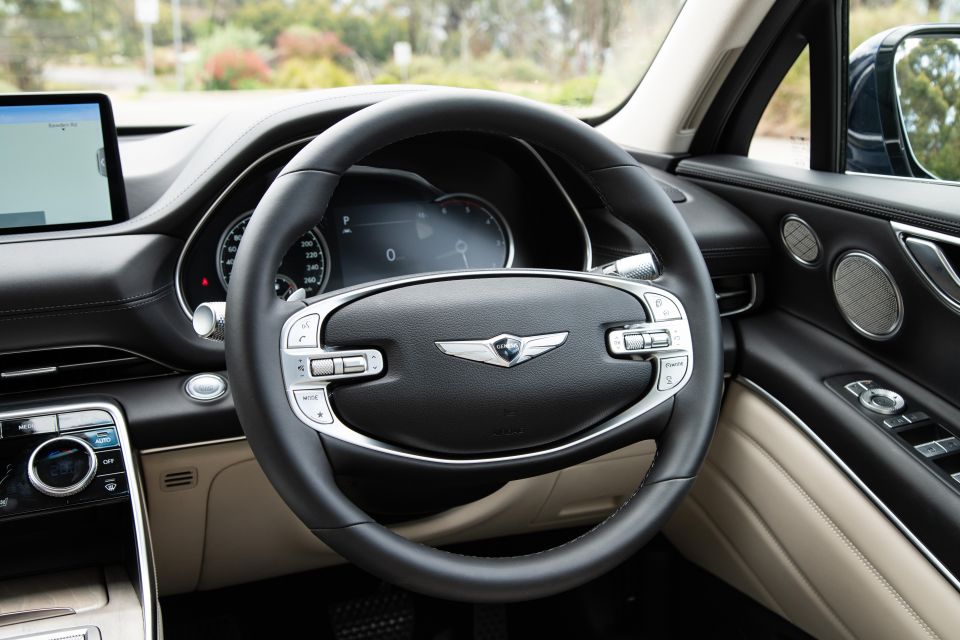
This package took the Touareg’s price on test to $114,990 before on-roads, plus a further $2100 for metallic paint for a total of $117,090.
The Genesis GV80 3.0D was not fitted with options, but there’s a $10,000 Luxury Package that looks rather tempting.
This adds quilted Nappa leather seats with driver massage functions, a digital instrument cluster, soft-closing doors, matrix headlights, heated and cooled middle seats, three-zone climate control, a suede headliner, remote parking, and more. Matte paint is a further $2000.
MORE: 2021 Genesis GV80 pricing and specs MORE: 2021 Volkswagen Touareg pricing and specs
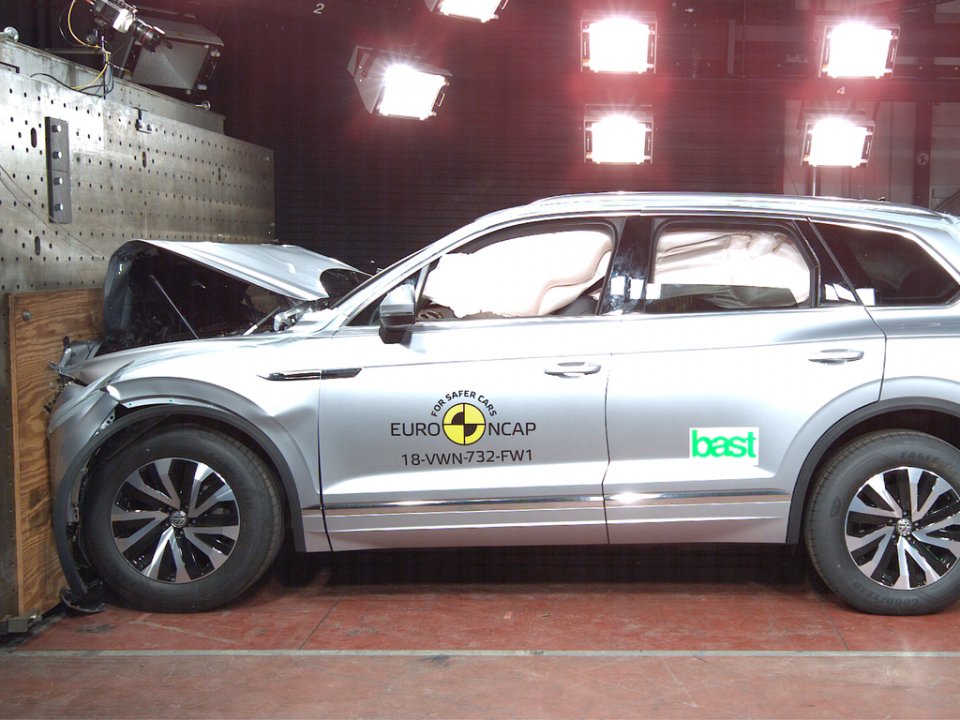
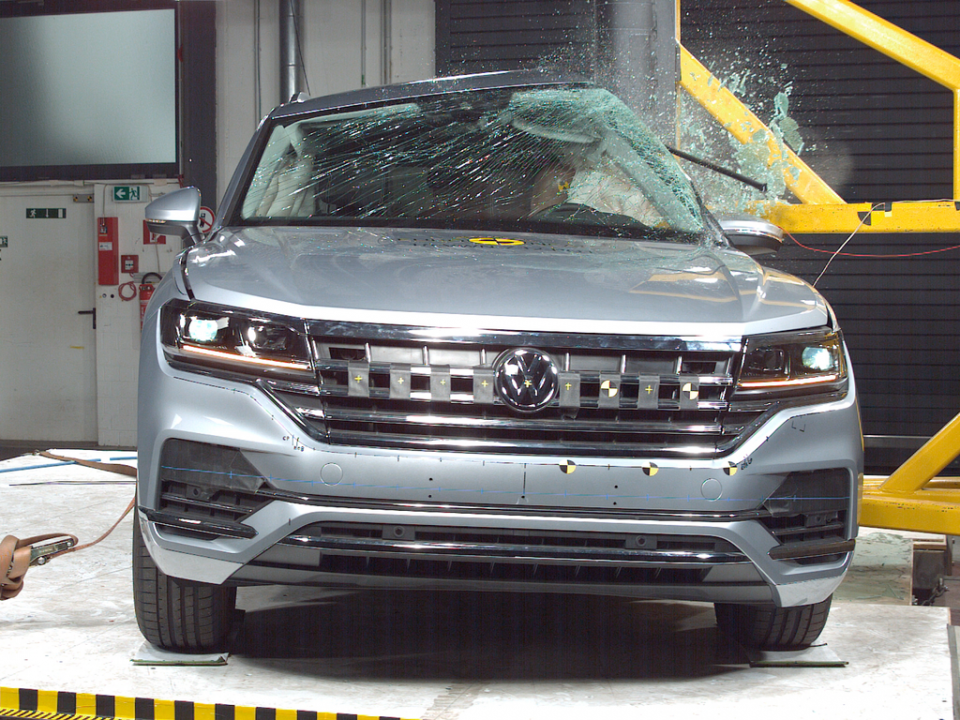
The Volkswagen has a 2018 five-star ANCAP rating. It scored 89 per cent for adult occupant protection, 88 per cent for child occupant protection, 72 per cent for vulnerable road users, and 78 per cent for safety assist.
The Genesis GV80 hasn’t been crash tested by Euro NCAP and ANCAP.
Volkswagen:
The Volkswagen’s standard safety equipment includes lane-keeping assist with adaptive lane guidance; blind-spot monitoring with front and rear cross-traffic alert; and front, side and curtain airbags.
The standard autonomous emergency braking (AEB) features pedestrian and cyclist detection. Should it detect one of these road users, it’ll apply the brakes at speeds between 5 and 85km/h. Vehicle detection and braking works at speeds from 10 to 250km/h.
Our R-Line also featured reverse AEB and a surround-view camera as part of the Sound & Comfort package.
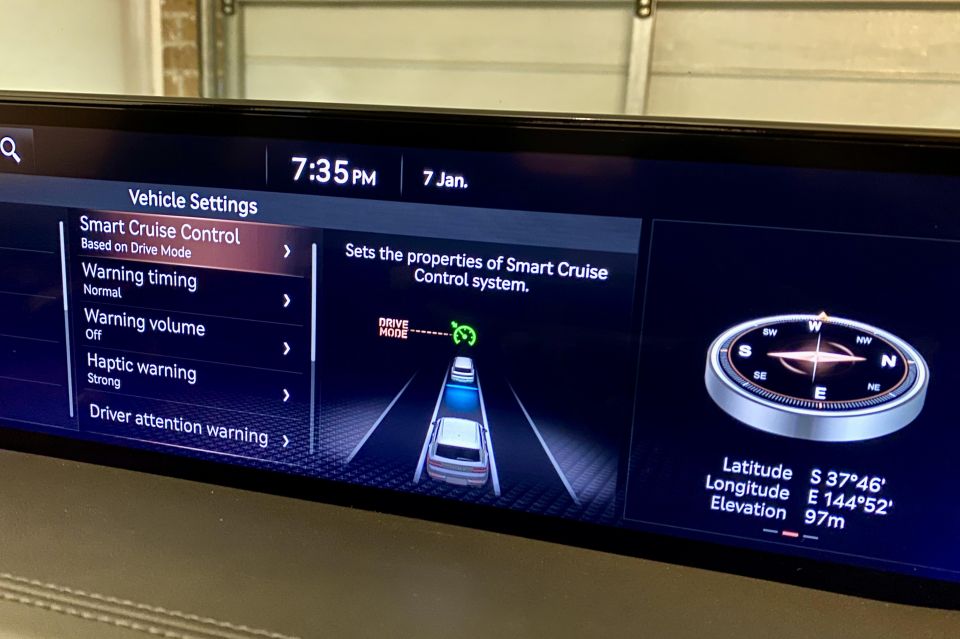
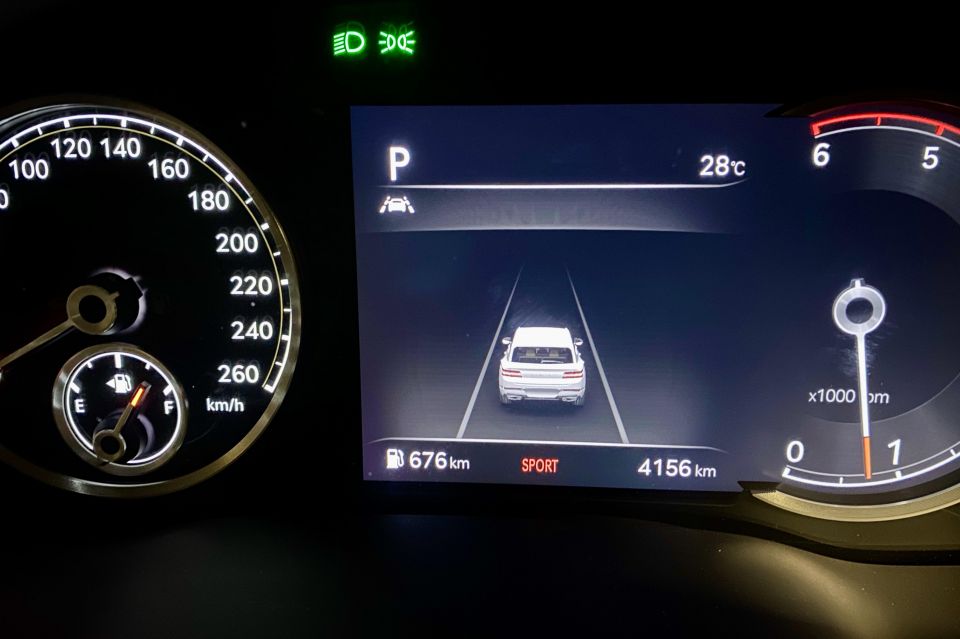
Genesis:
The GV80 also offers plenty of driver-assist features. The blind-spot monitoring includes a camera projection within the instrument cluster, plus blind-spot collision avoidance assist.
There’s AEB and forward-collision warning with car, pedestrian, and cyclist detection, plus junction turning, junction crossing, and side and oncoming lane-change avoidance functions.
Other safety equipment includes driver attention warning, lane-keeping assist, lane-following assist, rear cross-traffic avoidance assist, rear occupant alert, and safe exit alert. There are 10 airbags, including one between the two front seats.
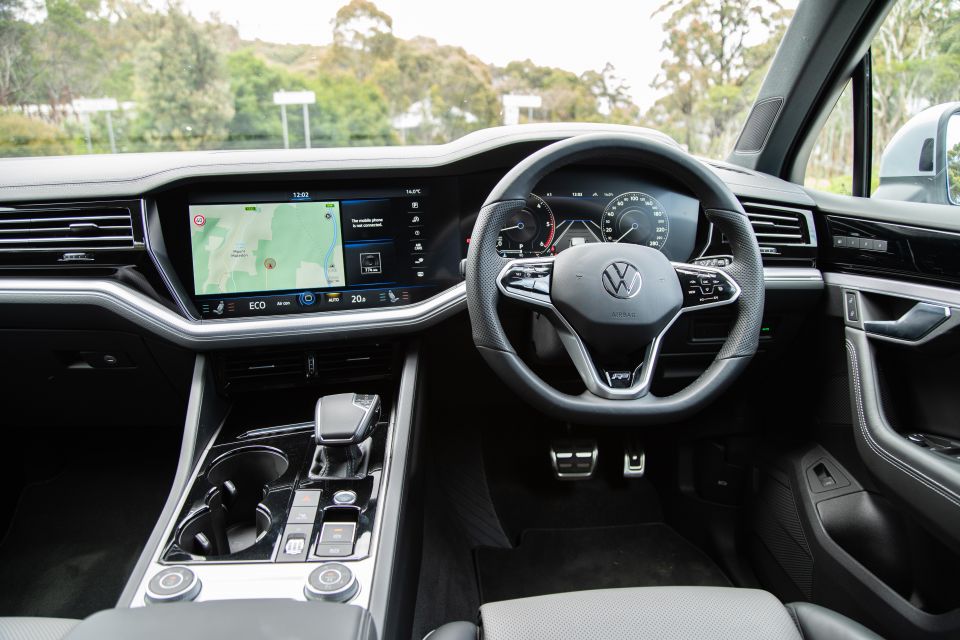
Volkswagen
The Touareg is a high-tech showcase for Volkswagen, and it has the screen real estate to prove it. The Innovision Cockpit faintly resembles a cinema screen slotted into the middle of the dashboard.
The 15.0-inch main display is slightly overwhelming to start with, because there’s so much space to play with and there are so many customisation options. But once you have it all dialled in, it’s one of the more intuitive infotainment systems out there.
The ‘Virtual Cockpit’ digital instruments are excellent. They’re crystal clear and blend the best of classic dials with the best of modern tech. It’s not quite as flashy as the system in the latest Audi Q7, but nor is it far behind.
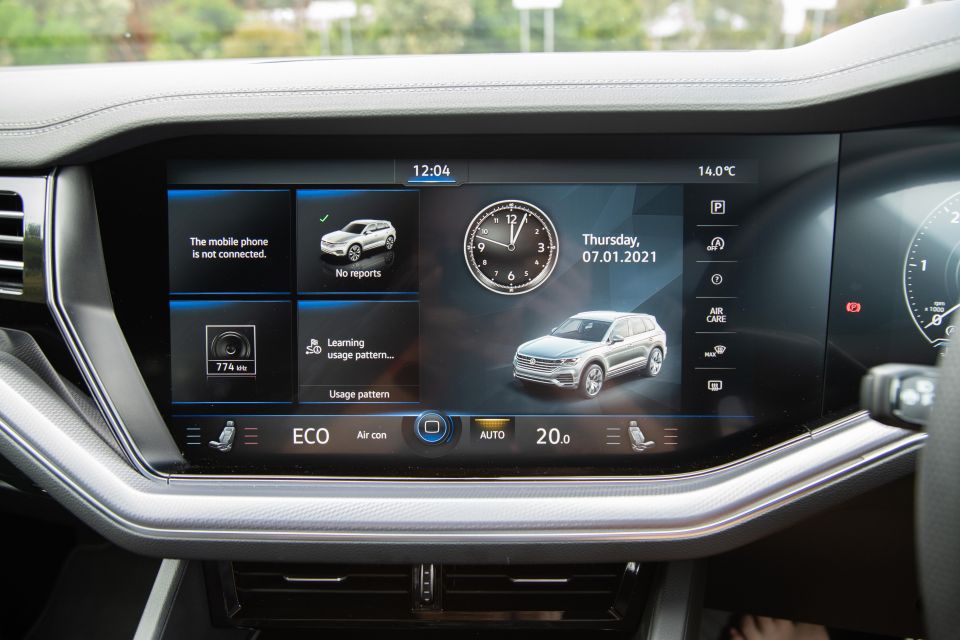
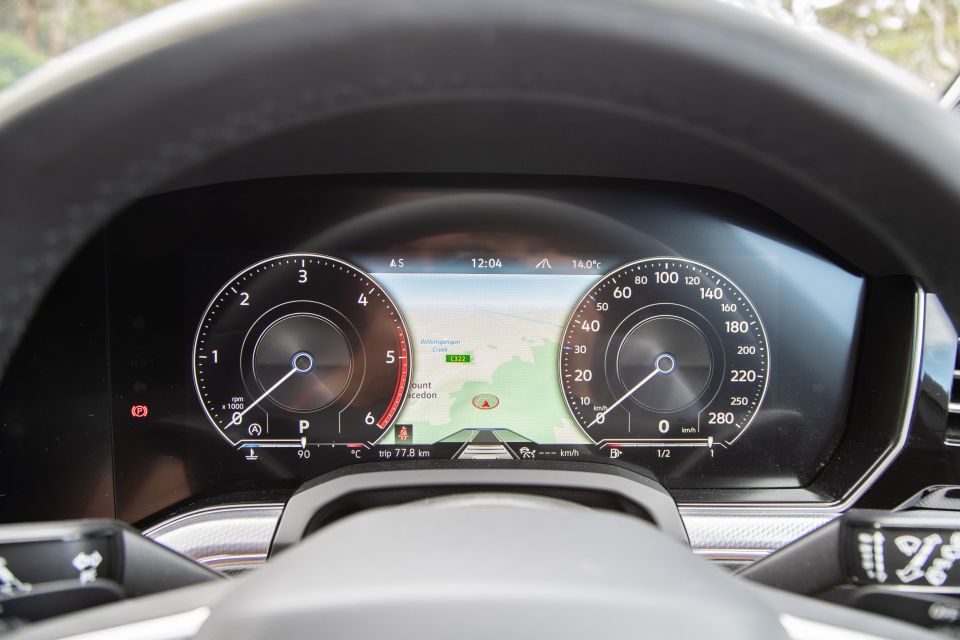
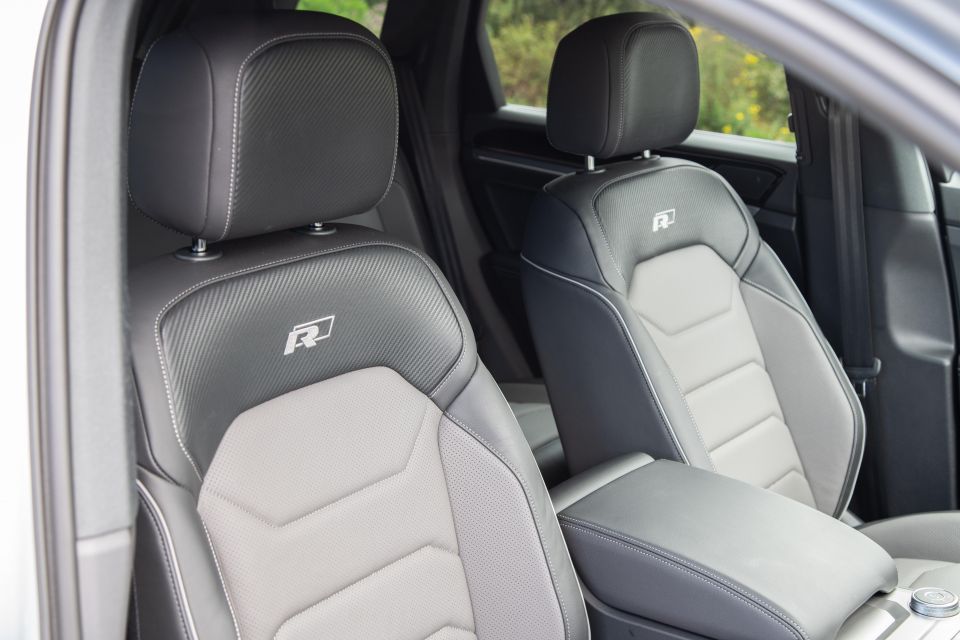
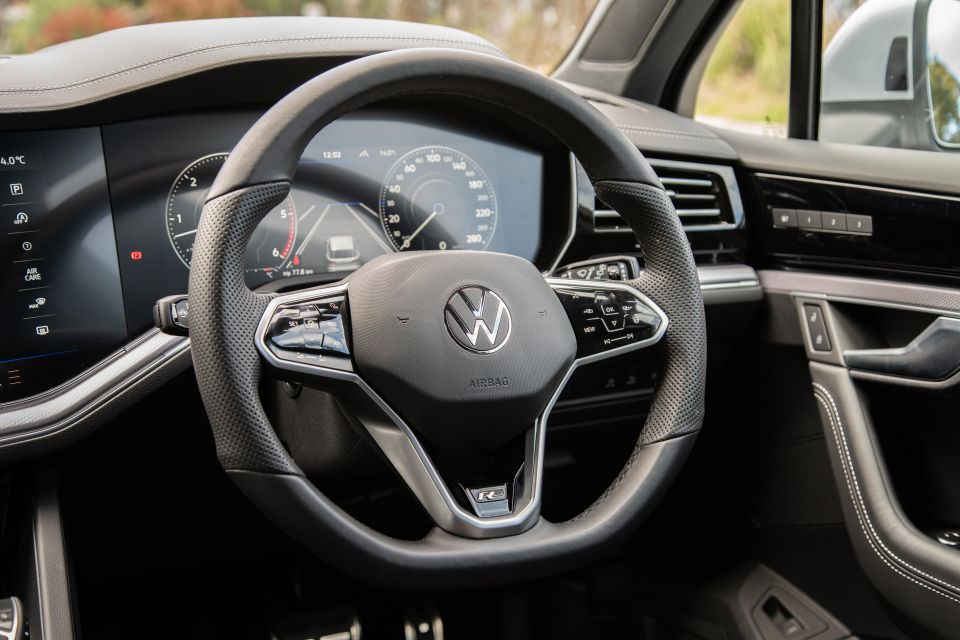
The fundamentals are excellent, from the cushy seats with heating, cooling, and massaging to the handsome steering wheel. And it’s beautifully put together inside, with the design chops to match its high-tech flair.
There are a few fiddly quirks though. For instance, the air-conditioning controls would be better if they were physical buttons. And the haptic touch-based buttons on the new steering wheel are a retrograde step compared to ‘proper’ buttons.
With a storage bin under the dashboard (home to the wireless phone charger), cupholders on the centre console, a decent bin under the armrest, and spacious door pockets, there are plenty of nooks and crannies for snacks, devices, and keys on long road trips.
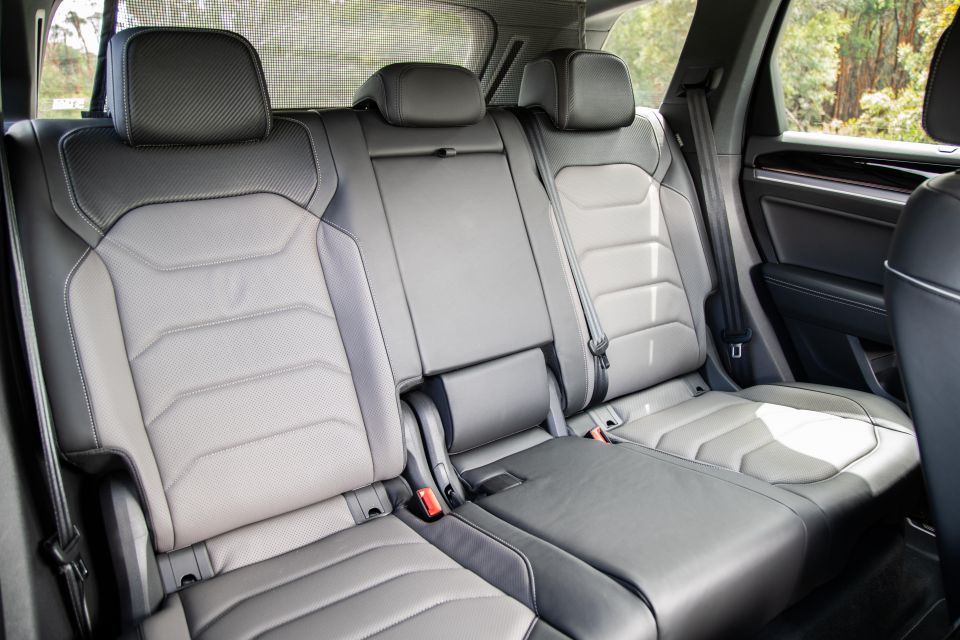
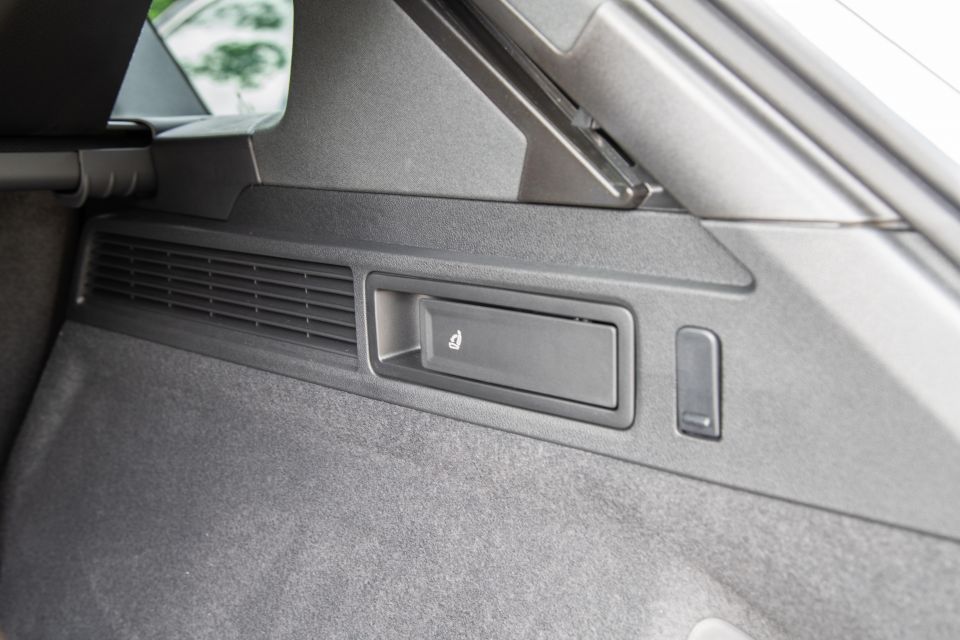
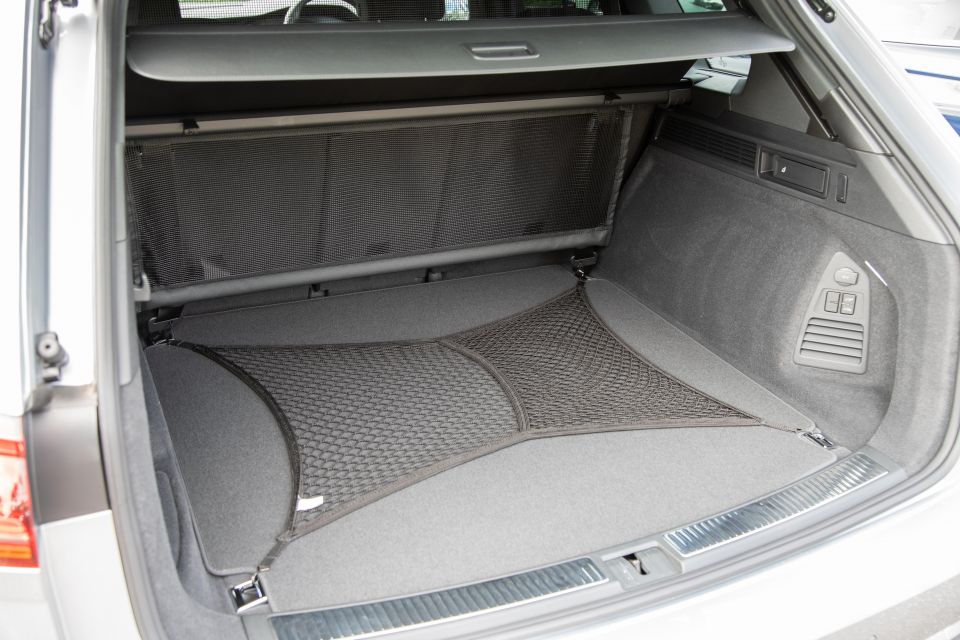
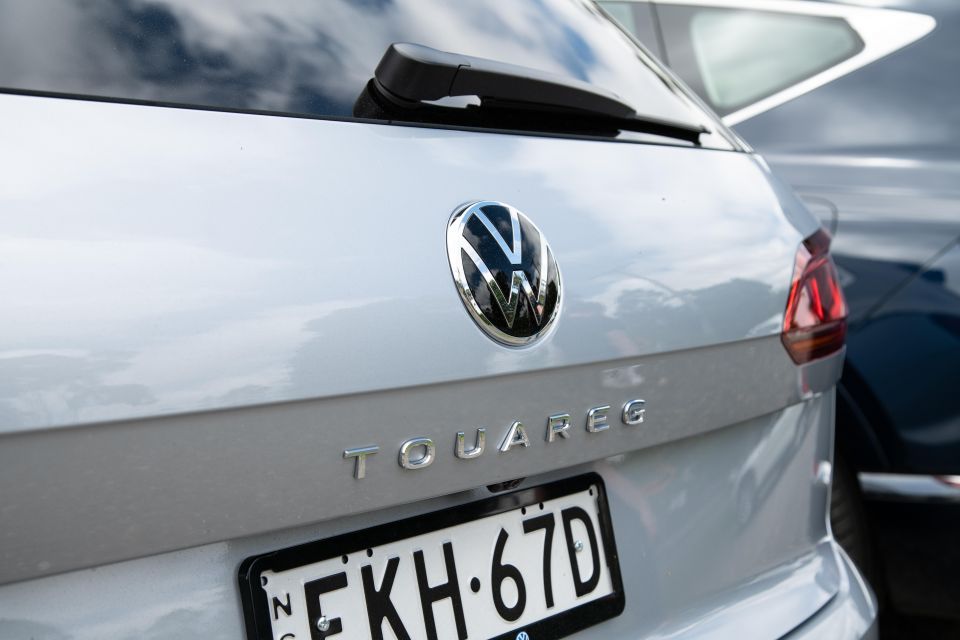
As for the rear? It’s similarly excellent, especially with the optional seat heating and four-zone climate control included in the Sound & Comfort Package.
There’s an abundance of legroom – even six-foot-seven me can sit behind six-foot-four colleague Mike Costello with space to spare – and toe room is a highlight.
Headroom is accomodating for lanky passengers, although the dark headliner and C-pillar position mean outward visibility isn’t quite as good as maybe it could be. Then again, that’s really nit-picking.
Boot space is a claimed 810L with the rear seats in place, and 1800L with them folded. Under the floor is a space-saver spare wheel and tyre.
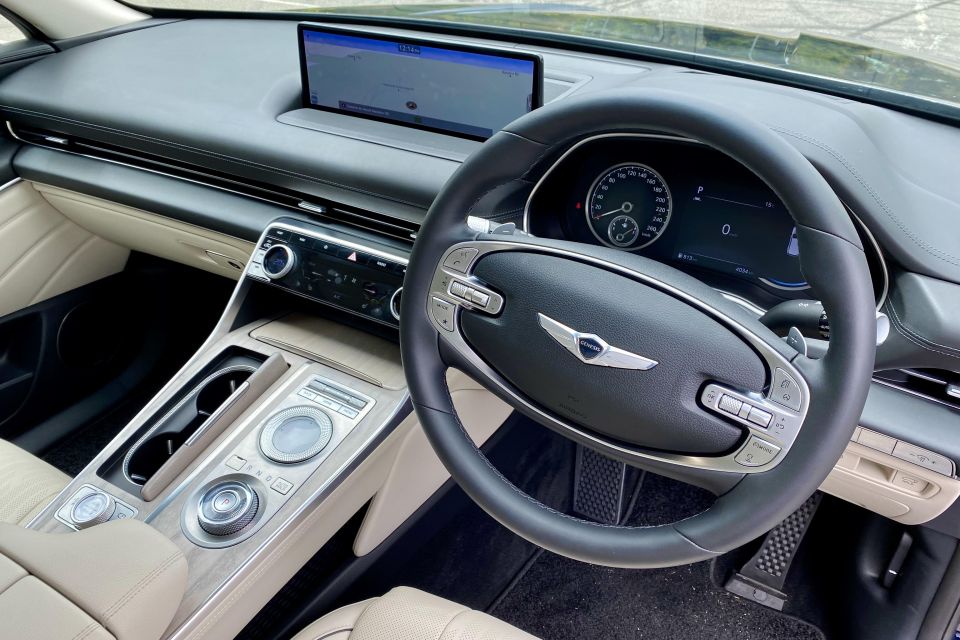
Genesis
The GV80 looks and feels more old-school luxurious than the Touareg inside, with a high-end flair that more than matches its Bentley-aping exterior. Soft leather? Yessir, we got it. Open pore wood? Tick!
The driver and passenger sit in heated and cooled armchairs that are downright plush, and the design is beautiful in two-tone beige and black. Everything you touch feels high quality, from the leather-trimmed dashboard to the soft, deep-pile carpets.
That steering wheel is weird, though. It’s in keeping with the older-school luxe vibe Genesis has clearly chased here, but it’s not particularly nice to look at, and always feels slightly ‘off’ to use. At least it has proper buttons, not haptic ones like the Volkswagen.
Although the screen in the GV80 comes close to matching the Touareg’s billboard on paper, it’s very different in practice. It’s long and slim, with a touchpad and rotary controller on the transmission tunnel, and some nearby shortcut buttons. It also works as a touchscreen.
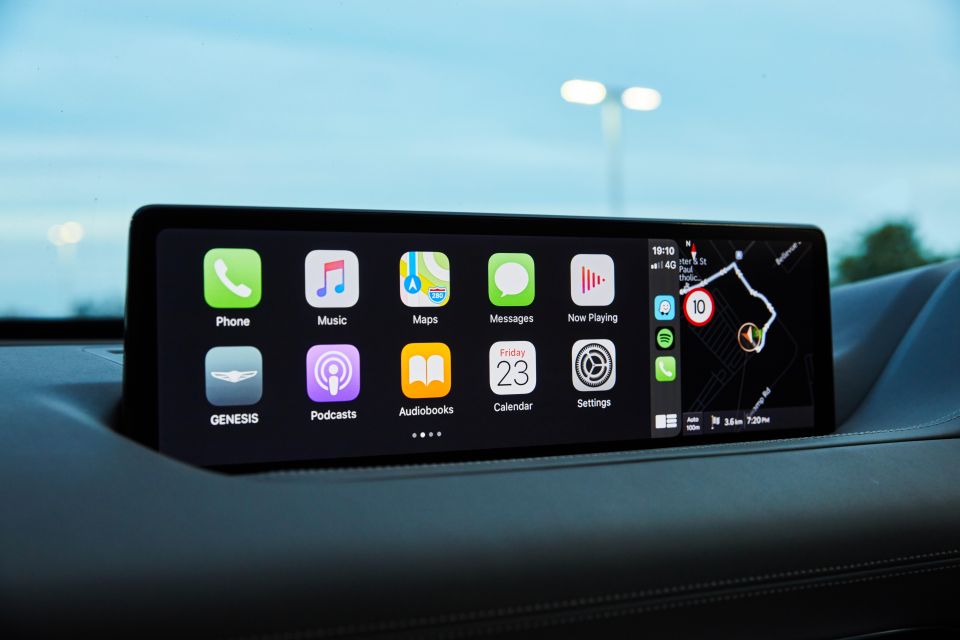
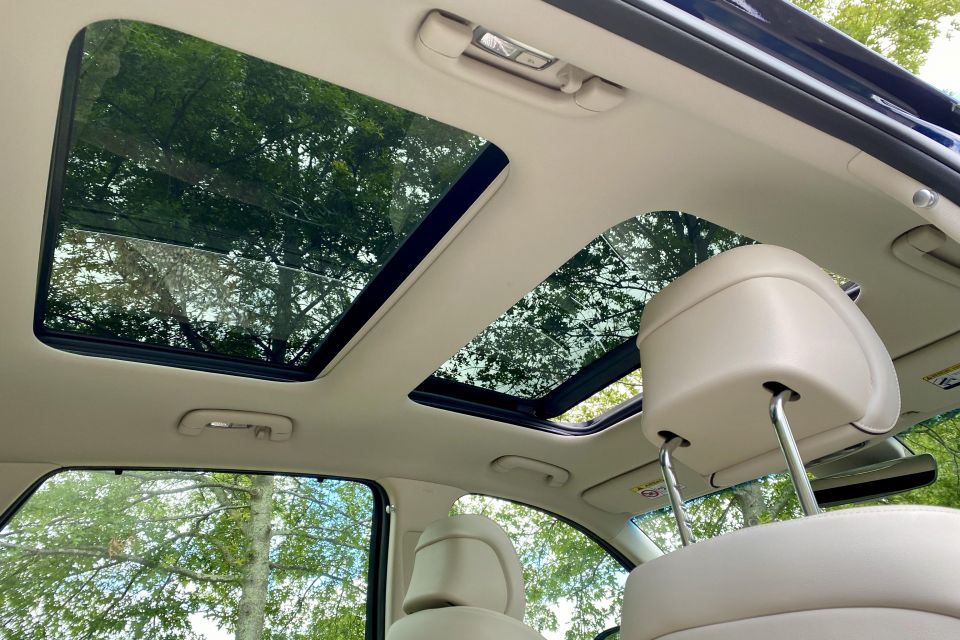
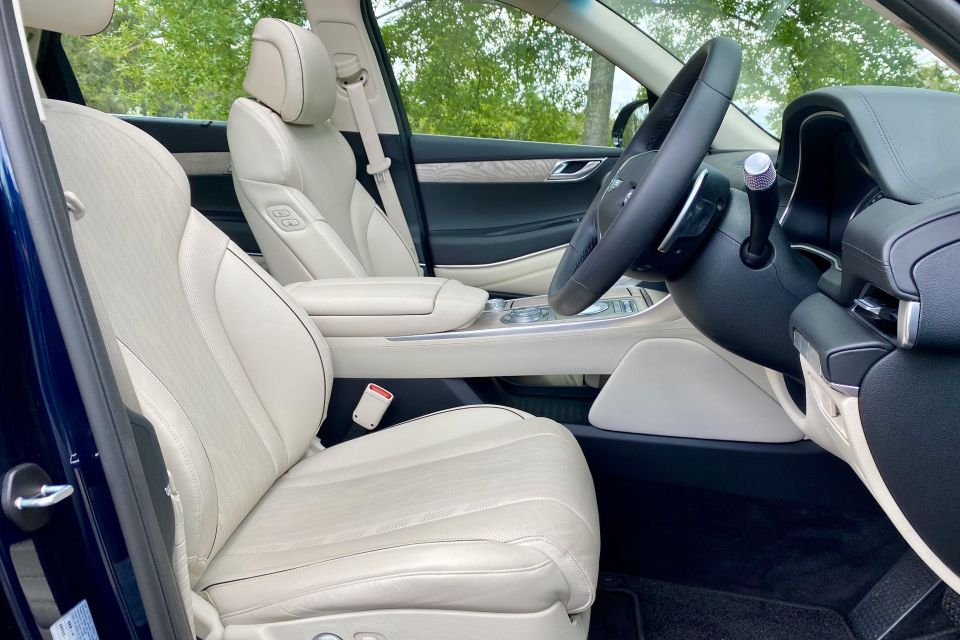
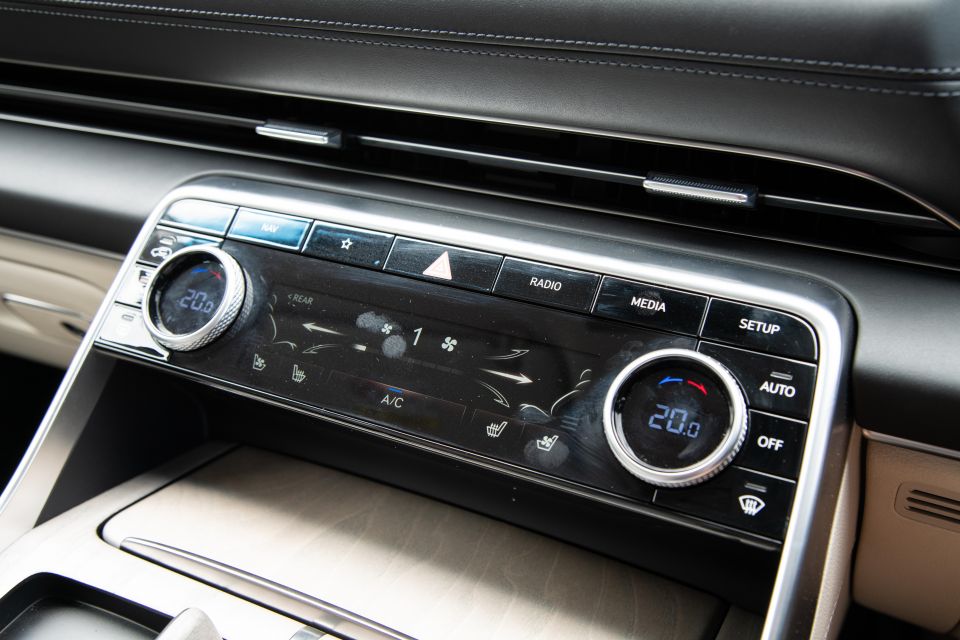
The graphics are slick and the responses snappy, but it’s not the most natural system in the world to use. The combination of swipes and scrolls, pokes and prods required to move around takes some getting used to, and the fact the infotainment dial, transmission dial, and drive mode dial are all within touching distance is an ergonomic miss.
While we’re talking technology, the standard instruments in the GV80 are a bit lacklustre. The analogue speedometer is joined by a digital rev counter and a slightly slicker take on the trip computer that features across the Hyundai range, with the blind-spot view camera feed appearing in the right-hand side of the binnacle regardless of which indicator is flicked.
A fully-digital instrument binnacle is part of the $10,000 Luxury Pack, but shouldn’t it be standard fare? There’s nothing wrong with the technology, it’s just not quite as polished as that of the Touareg.
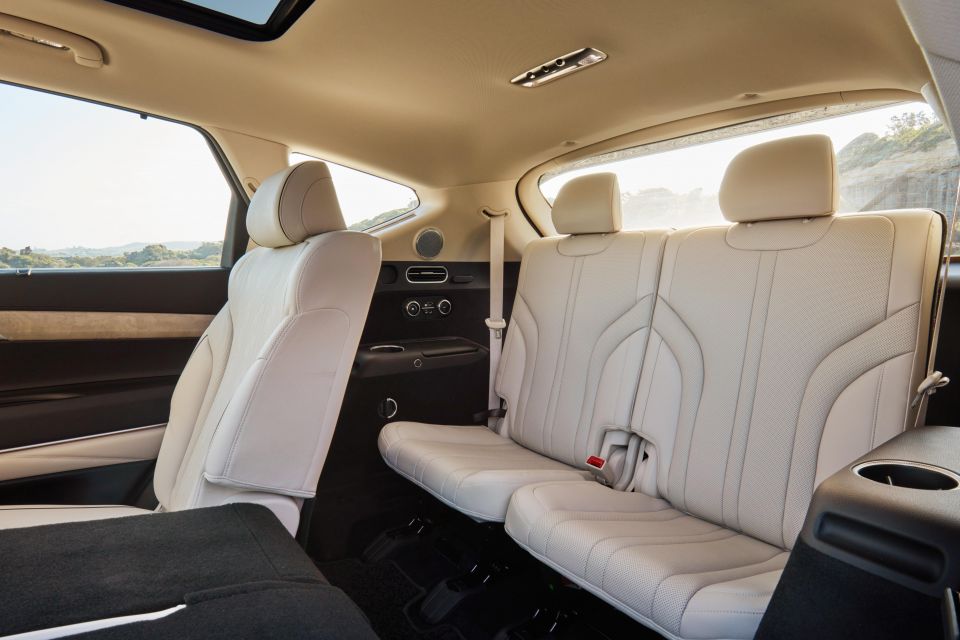
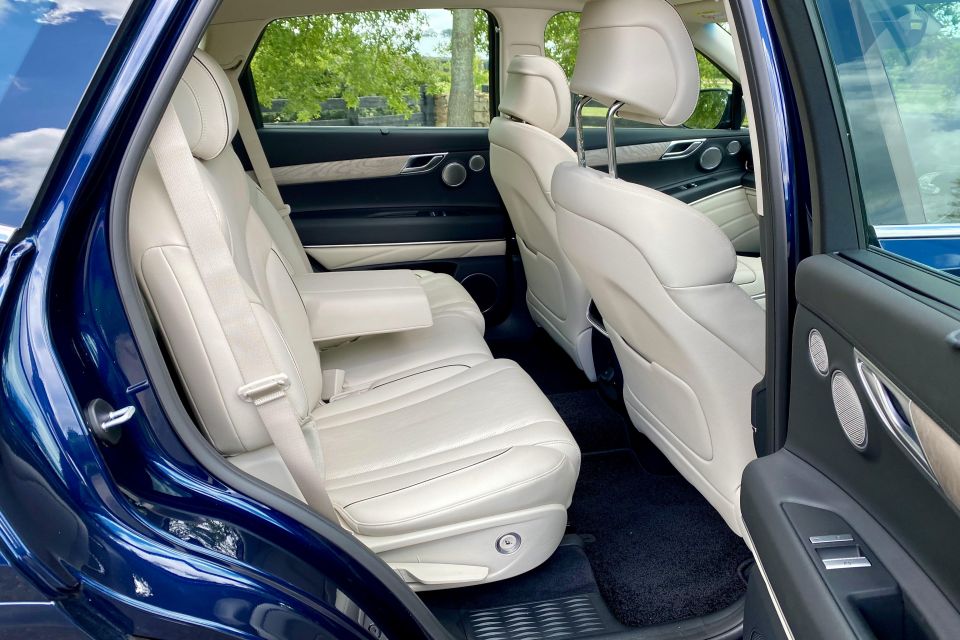
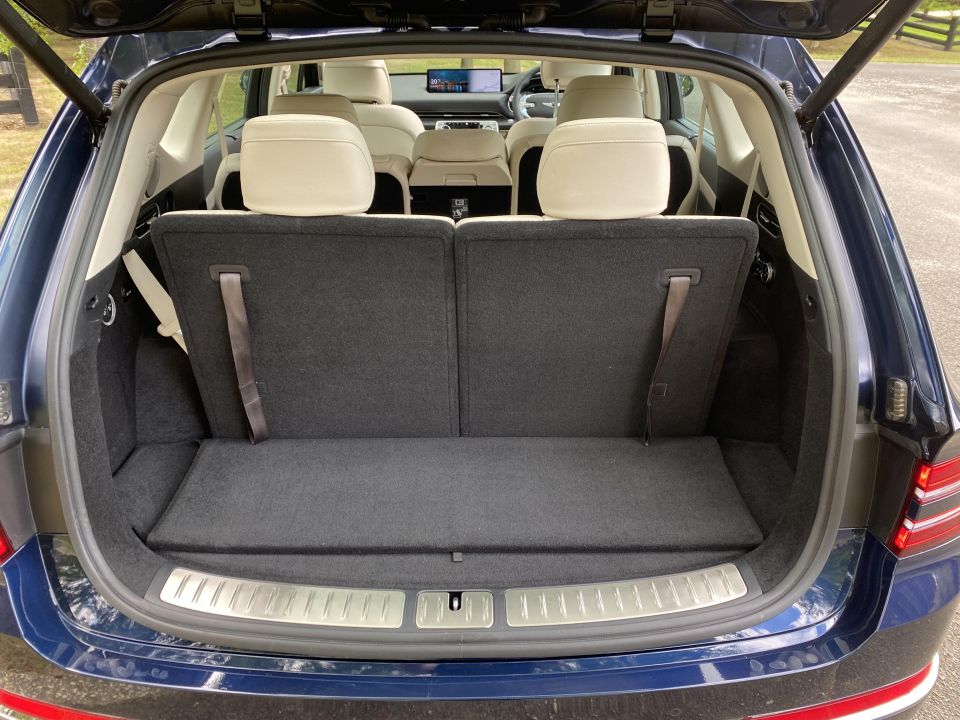
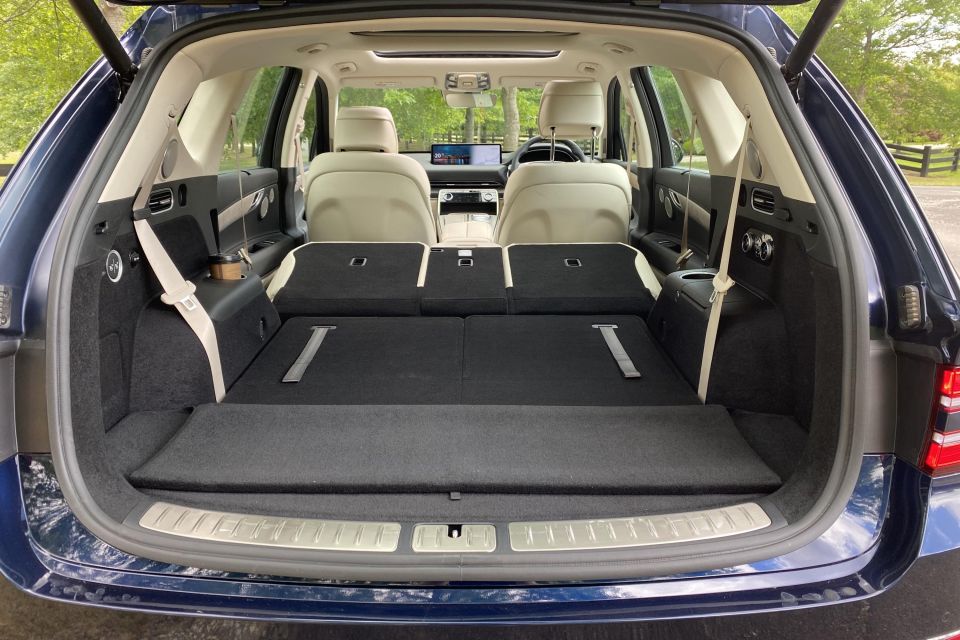
CarExpert brings reviews, research tools and trusted buying support together, guiding you from research to delivery with confidence.
Storage is excellent, with a wireless phone charger at the base of the dash, twin cupholders in front of the armrest, a spacious central bin, and a clever space under the transmission tunnel.
Rear passengers are better off in the GV80 than they are in the Touareg. There’s more legroom and headroom despite the sunroof. Rear vents are standard, although the optional rear climate controls and heated rear seats were not fitted to our tester.
The boot in the GV80 can’t match the Volkswagen for seats-up boot space, with a claimed 727L available with the rear seats in place, but it has more space (2144L) with them folded. It also has seven seats, which the Touareg doesn’t, although there’s no spare wheel.
Sure, they’re best saved for part-time use, but having the option is valuable nonetheless. Passengers back there get their own climate controls and air vents, and the seats fold with a simple tug of a seatbelt-style strap on their rear.
| GenesisGV80 | Volkswagen Touareg | |
|---|---|---|
| Length | 4945mm | 4878mm |
| Width | 1975mm | 1984mm |
| Height | 1715mm | 1686mm |
| Wheelbase | 2955mm | 2899mm |
| Boot | 727L | 810L |
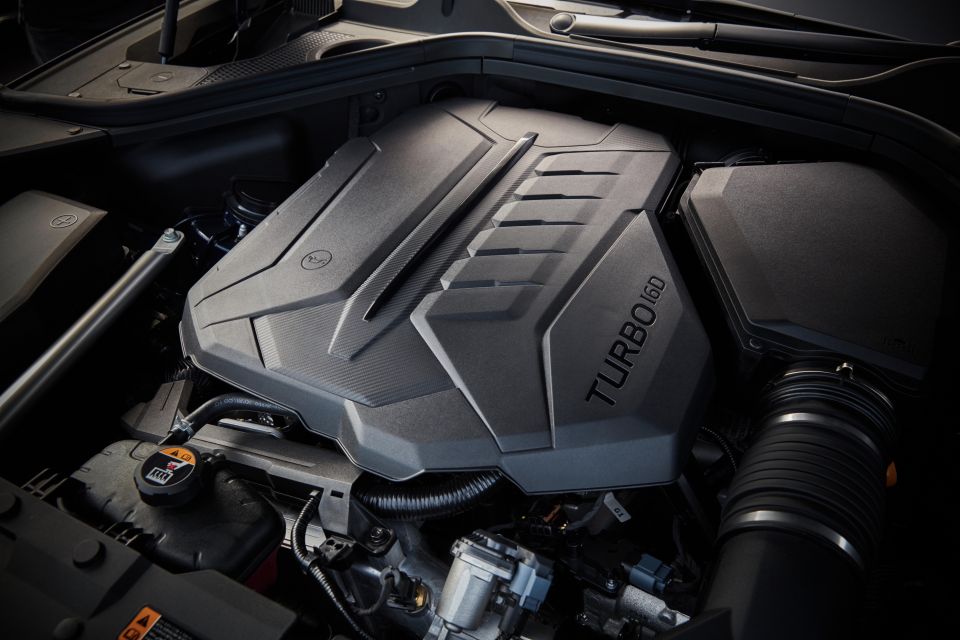
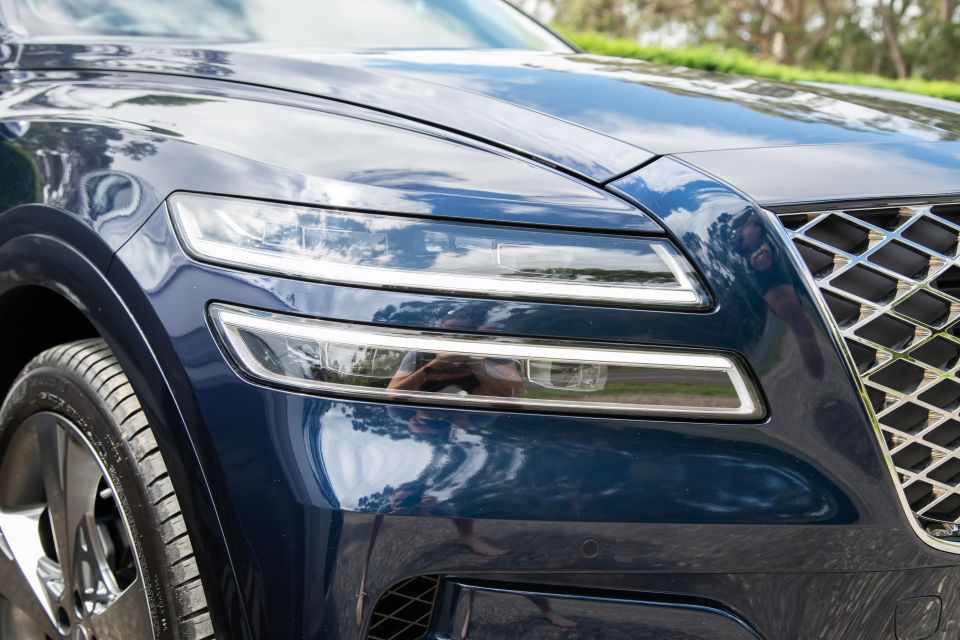
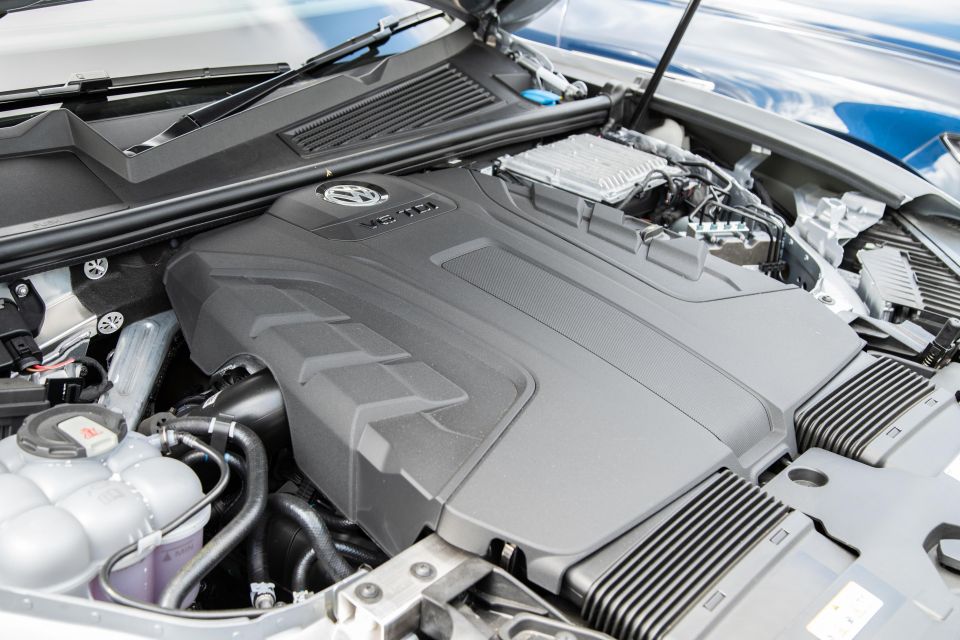
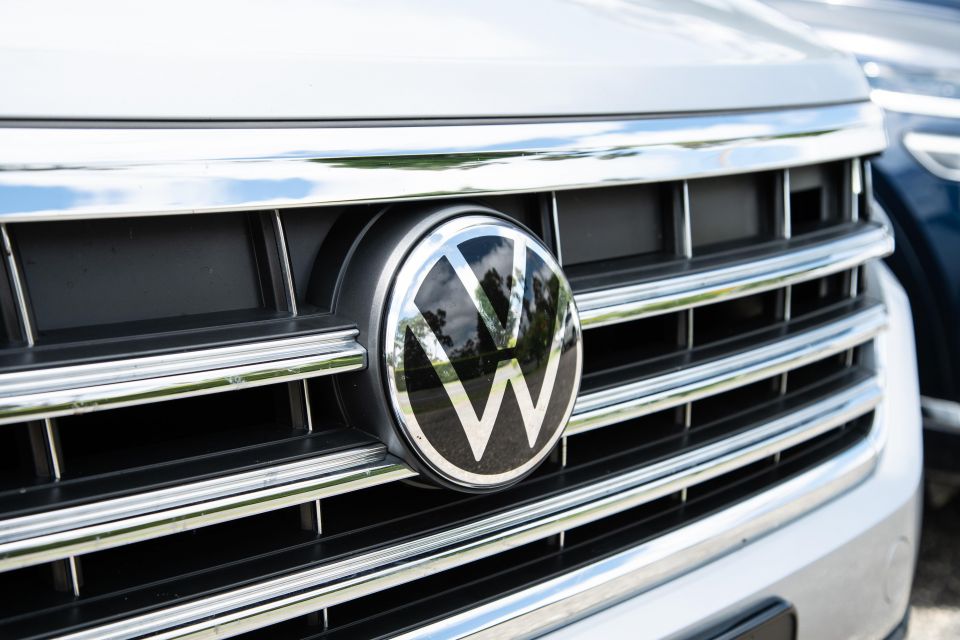
Both these luxury SUVs come with big, effortless 3.0-litre turbo-diesel engines that suit beautifully.
Power in the Touareg comes from a 3.0-litre V6 making 210kW of power and 600Nm of torque, put to the road through an eight-speed automatic transmission and a full-time all-wheel drive system.
The Genesis GV80 is powered by a 3.0-litre turbo-diesel inline-six with 204kW of power and 588Nm of torque, also sent to all four wheels through an eight-speed automatic transmission.
Genesis says the GV80 will hit 100km/h in 6.8 seconds, while Volkswagen claims 6.1 seconds for the Touareg. Claimed fuel economy is 8.8L/100km in the GV80 and 6.8L/100km in the Touareg.
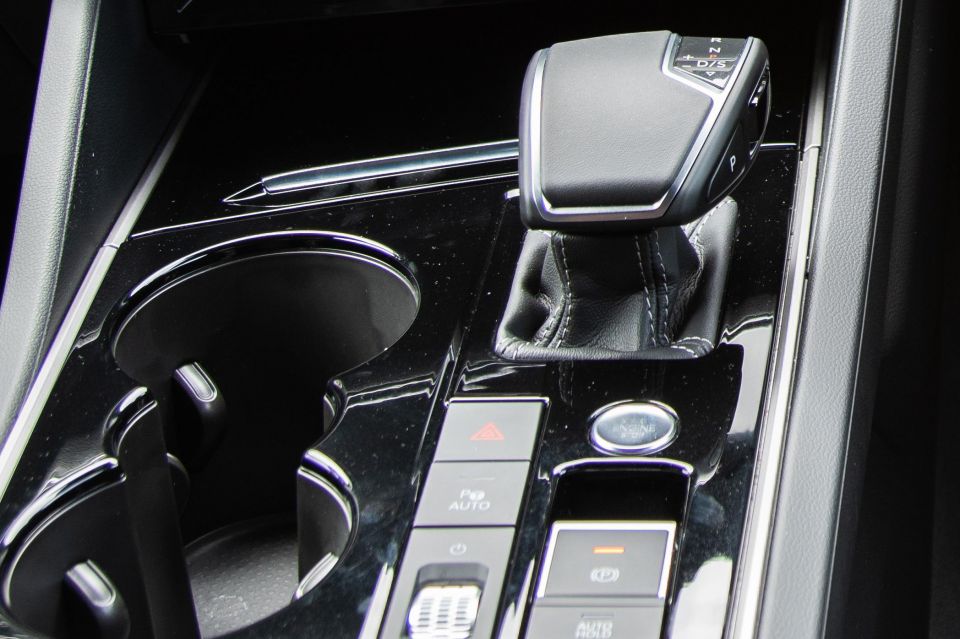
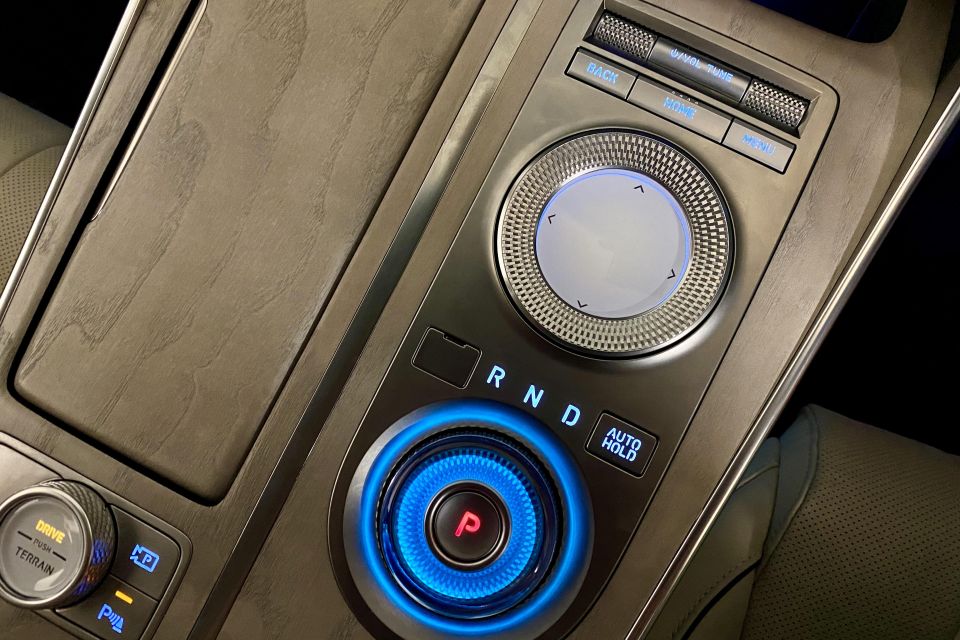
We were actually more efficient than the factory claim over 500km in the GV80, returning 8.6L/100km, while the Touareg returned 8.4L/100km. So in the real world it seems close.
Note the difference in towing capacities in the table below.
| Genesis GV80 | Volkswagen Touareg | |
|---|---|---|
| Fuel | Diesel | Diesel |
| Displacement | 3.0-litre | 3.0-litre |
| Cylinders | Inline six | V6 |
| Power | 204kW @ 3800rpm | 210kW @ 4000rpm |
| Torque | 588Nm @1500rpm | 600Nm @ 1750rpm |
| Drive | 4×4 | 4×4 |
| Transmission | Eight-speed auto | Eight-speed auto |
| Fuel economy | 8.8L/100km | 6.8L/100km |
| Fuel tank | 80 litres | 90 litres |
| 0-100km/h | 6.8 seconds | 6.1 seconds |
| Towing capacity | 2722kg | 3500kg |
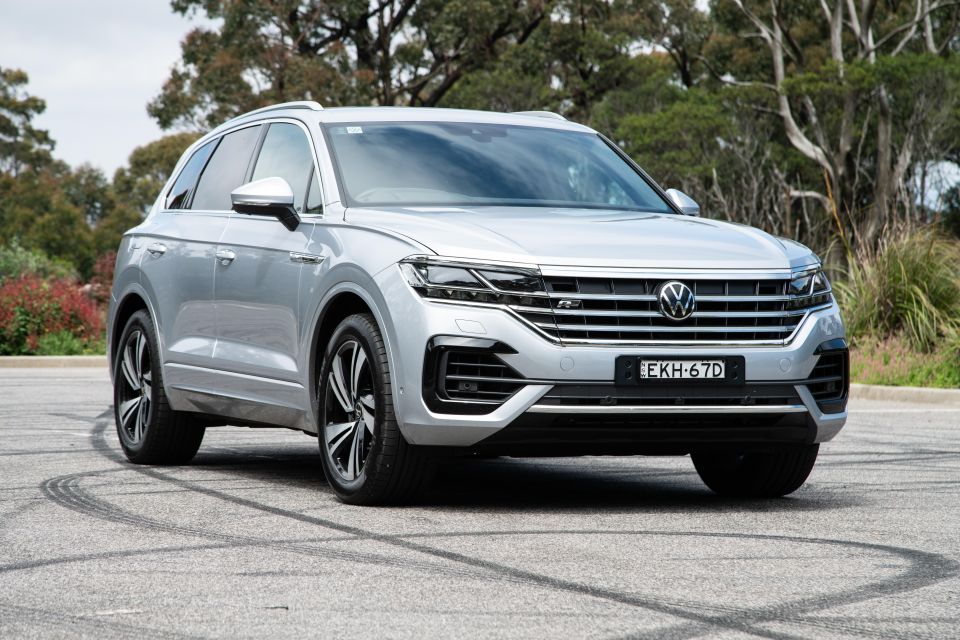
Volkswagen
If you’re wondering how Volkswagen can justify charging $120,000 for a Touareg, have a drive.
Its underpinnings are shared with the Audi Q7, Bentley Bentayga, Porsche Cayenne and Lamborghini Urus, so some serious money has been poured into its development. That shines through on the road.
For starters, the engine is muscular and effortless from low revs, pulling hard from just off idle. Peak torque comes on tap at just 1750rpm and hangs around until 3000rpm, so there’s almost always performance available when you flex your right foot.
That claimed 6.1-second sprint to 100km/h feels bang on the money. This might be a family hauler, but it absolutely hauls arse when you need.
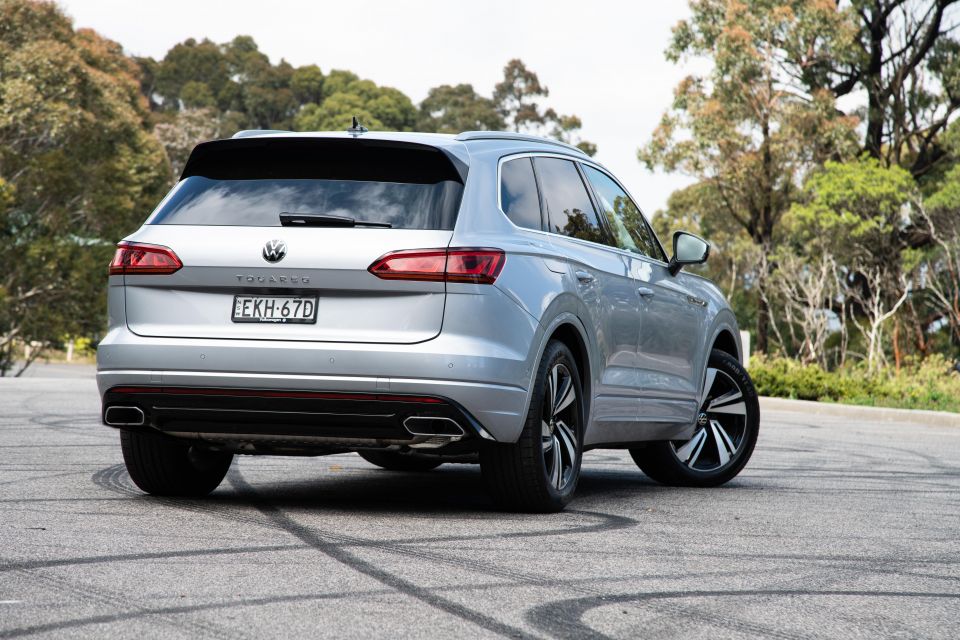
Arguably more impressive than the performance is the refinement, though. The 190TDI engine in the pre-update Touareg was already a smooth operator, but the new six-cylinder in the 210TDI moves the game forward again.
It barely raises its voice above a murmur in the cabin, there’s no vibration through the steering wheel or doors, and it doesn’t ever feel stressed. Matched with a smooth-moving eight-speed auto, the powertrain is a match for anything in a BMW, Audi, or Mercedes-Benz.
It’s also a close match for the engine in the GV80, which is similarly excellent. But more on that later.
The air suspension in the 210TDI R-Line is just as sophisticated as the powertrain. Capable of raising for off-roading or lowering to make loading heavy items into the boot easier, it lends the Touareg a comfortable ride in Normal or Comfort Mode, and can be firmed up in Sport.
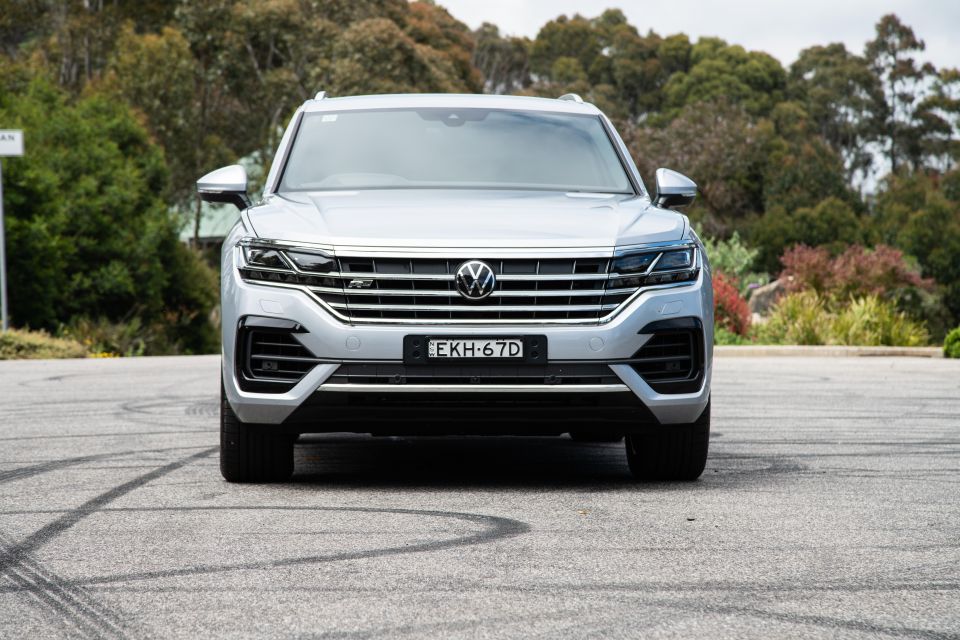
Although it never floats, the Touareg does a good job keeping passengers isolated from the lumps and bumps of the city, and is perfect for highway cruising where it soaks up bigger crests and dips while controlling the body in one neat movement.
There’s some clever chassis tech on hand in the form of active anti-roll bars. If you’re turning left, they can stiffen on the right-hand side of the car to mitigate body roll. When you’re driving in a straight line they slacken off, allowing the car to move more naturally.
Although they don’t turn the Touareg into a sports car, they do make it the more sporting of the two cars on test here. It’s happier to be tipped into corners, and the body control is just better sorted than that of the Genesis.
Neither of these cars is difficult to drive in the city, with light low-speed steering and surprisingly good visibility over the shoulder. The fact the Touareg’s generous Goodyear tyre sidewalls will keep those handsome R-Line alloys from getting scraped is a bonus, too.
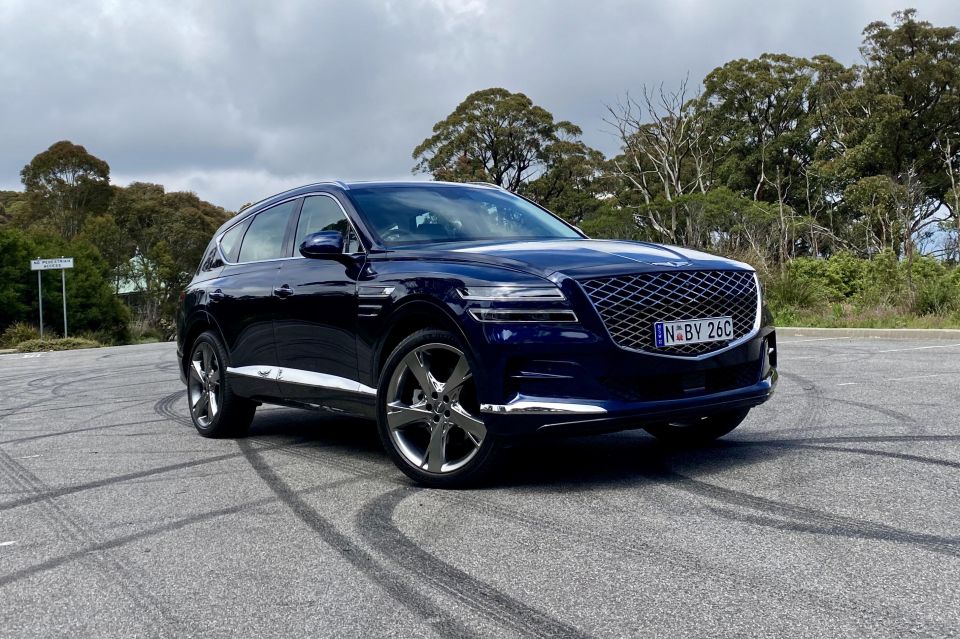
Genesis
Although it rides on low-profile Michelin Pilot Sport 4 SUV tyres, the GV80 never feels sporting in the way the Touareg can. It’s happier wafting along, surfing the surfeit of turbocharged torque on offer from the inline-six engine.
It’s buttery smooth like the best inline-six engines, easily matching the Touareg for refinement as the revs rise, and its torque peak arrives earlier but hangs around until the same 3000rpm as the V6 in the VW.
Like the Touareg it hauls hard in-gear, delivering the same feeling of swelling, indomitable acceleration. The GV80 is actually slower off the mark on paper, but it doesn’t feel any slower in the real world.
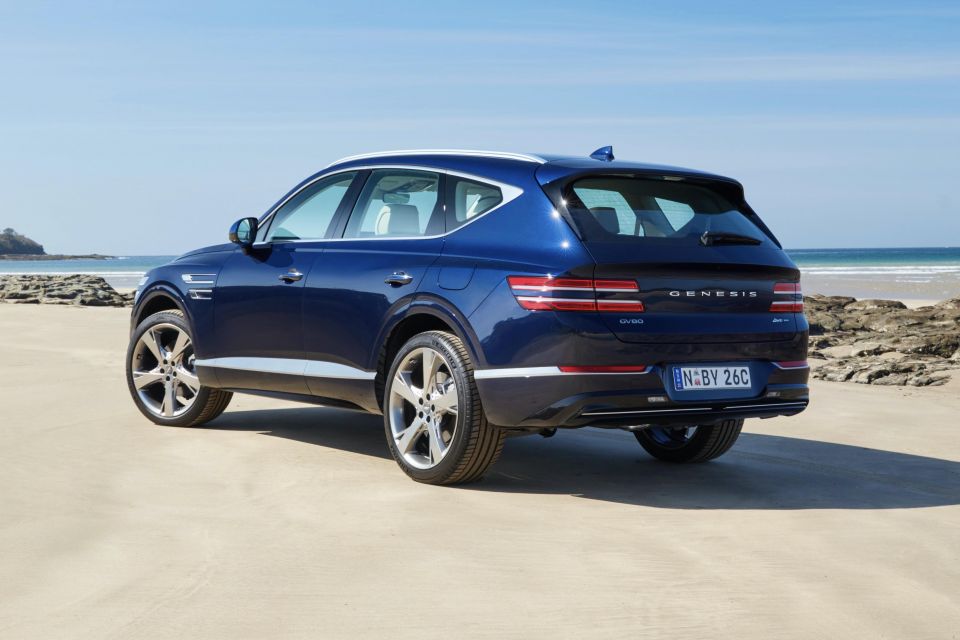
In fact its willingness to kick down makes it feel quicker than the Volkswagen at times, because you don’t need to lean so hard on the throttle waiting for the transmission to abandon its environmentally-conscious pretences and give you the gear you want.
The GV80 has been extensively tuned on Australian roads, but it has a distinctively Korean-American luxury feel from behind the wheel.
Unlike the Touareg it doesn’t ride on air suspension. Instead, it rides on steel springs with adaptive dampers. But it also has a system that uses the front camera to detect incoming bumps, and control the damping force to suit.
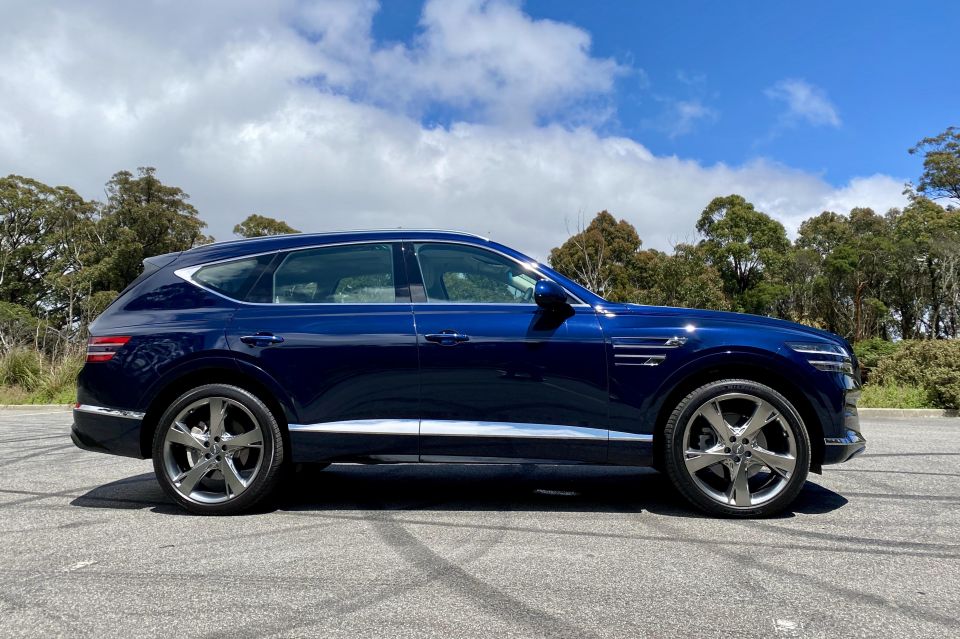
The ride in Comfort mode is wafty on smooth roads, with what feels like lots of suspension travel. But the 22-inch wheels can slap hard into sharper bumps, and the body takes multiple movements to settle after dips or crests. Flicking into Sport mode doesn’t make things racy or firm, and it improves body control to where it should be in Comfort.
You’re able to set up a custom drive mode mixing the two, by the way.
Both these cars are whisper-quiet at a cruise, with hardly any engine noise, wind noise, or tyre roar sneaking into their leather-lined cabins.
The matching suites of active driver assists seemed largely well calibrated in both, save for the lane-centring system on the Genesis, which feels like it’s trying to wrestle the wheel from your hands at times. The lane-keeping aid works more subtly.
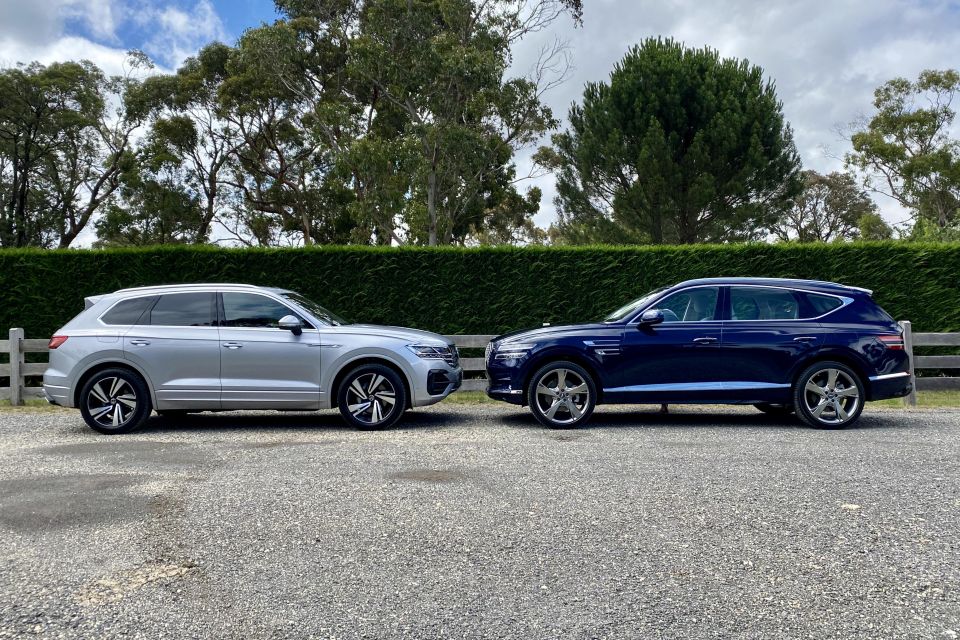
Volkswagen
A five-year and unlimited-kilometre warranty is standard, as with the wider Volkswagen range.
Maintenance for the Touareg is required every 12 months or 15,000km. A three-year service package is priced from $1350, while a five-year package will set you back $2500.
Genesis
Like all Genesis models, the GV80 comes with a five-year, unlimited-kilometre warranty and 24/7 roadside assist program for private buyers.
You also get the first five scheduled services completely free-of-charge. Maintenance is required every 12 months or 15,000km.
The company has servicing locations nationwide. Initially, they’ll be staffed with Genesis technicians at Hyundai workshops, but separate Genesis-branded service centres are said to be in the works. Genesis Australia is also rolling out a valet program.
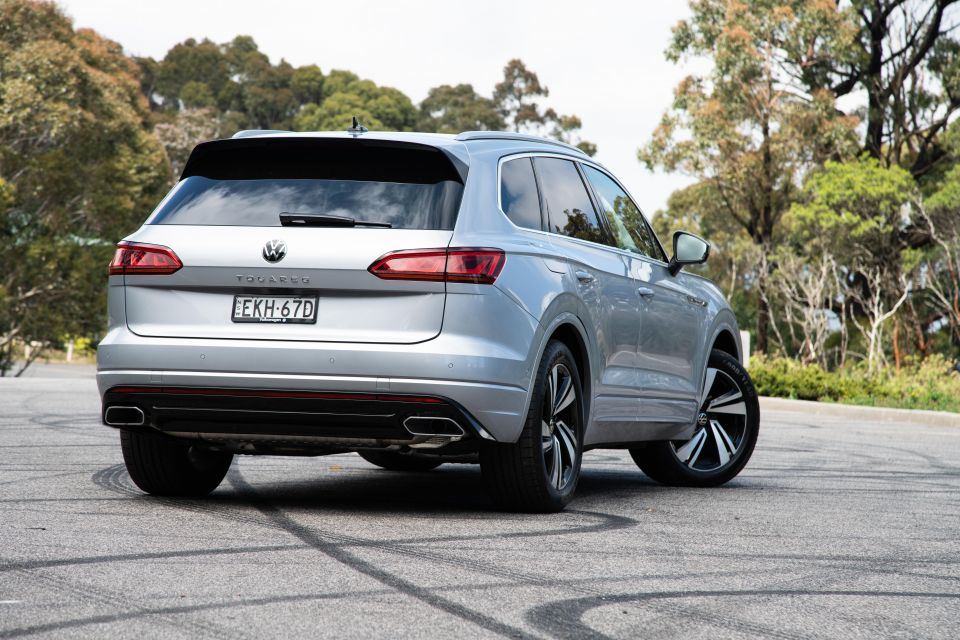
Genesis deserves credit for creating such a bold, confident luxury SUV.
It looks like a baby Bentley and takes a decidedly old-school approach to how a high-end family car should drive, but it’s a bit rougher around the edges than the Touareg.
Realistically, it’s a few suspension tweaks away from winning this comparison. It’s also $5000 cheaper than the Touareg on list price, and about $14,000 cheaper as tested here – although we’d argue the $10,000 Luxury Pack is a must have, and narrows that gap significantly.
As for the Touareg? It’s expensive, but it more than justifies the price tag. The way it drives is more polished, its high-tech interior is more intuitive than you might expect, and its links to much more expensive Volkswagen Group metal lend it some street cred. Ignore at your peril.
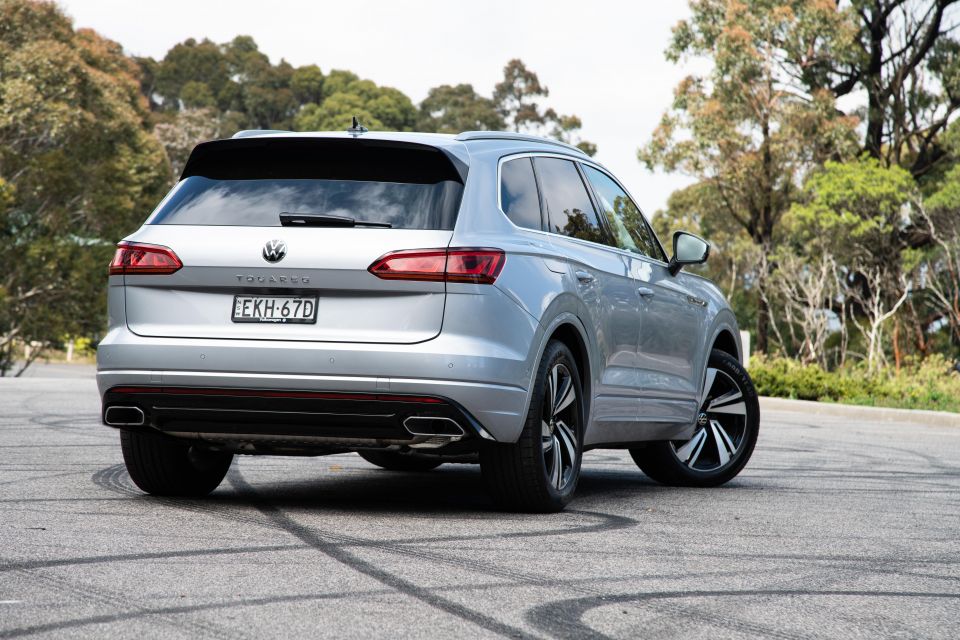
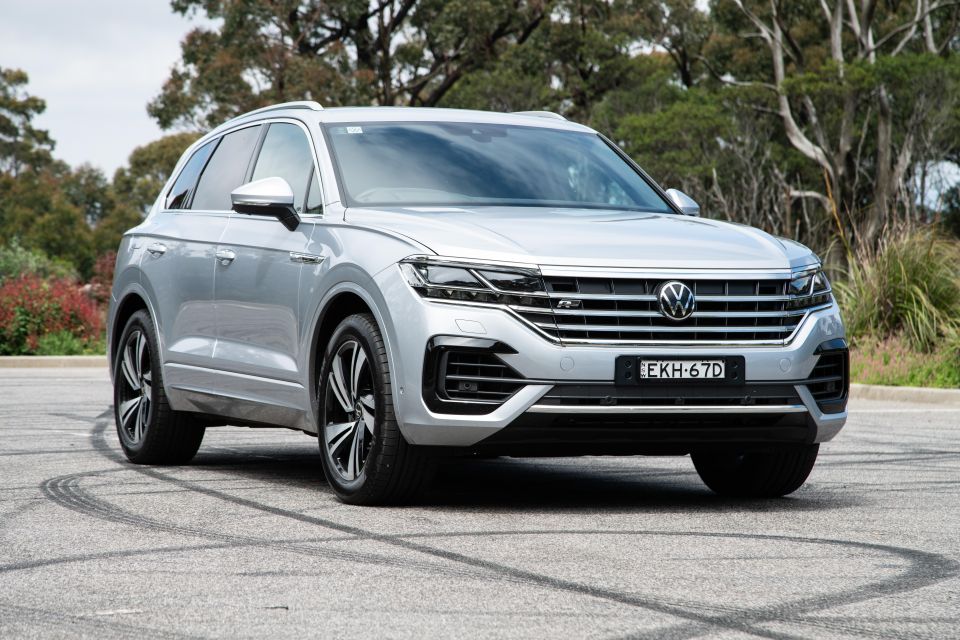
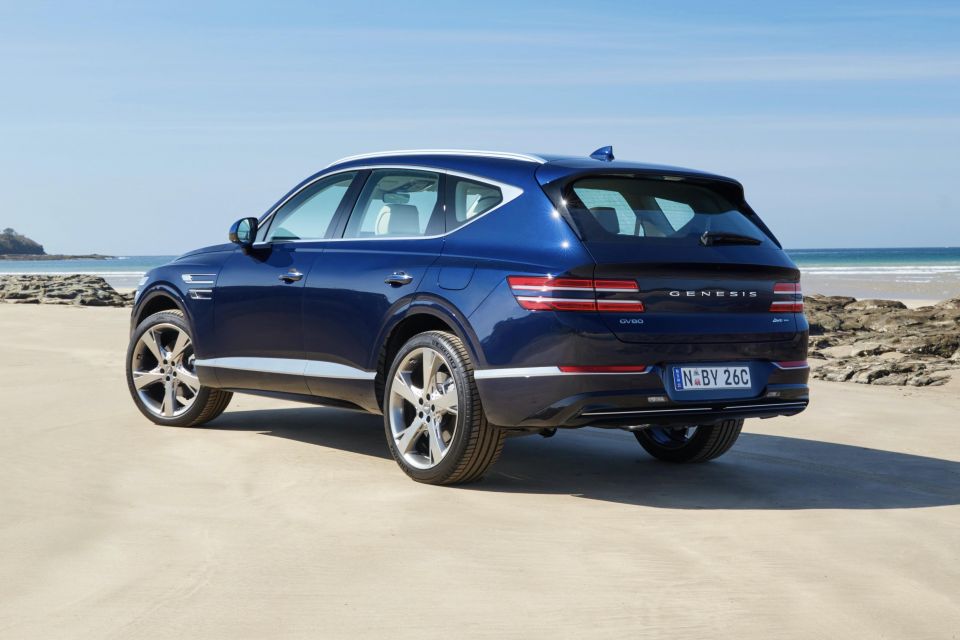
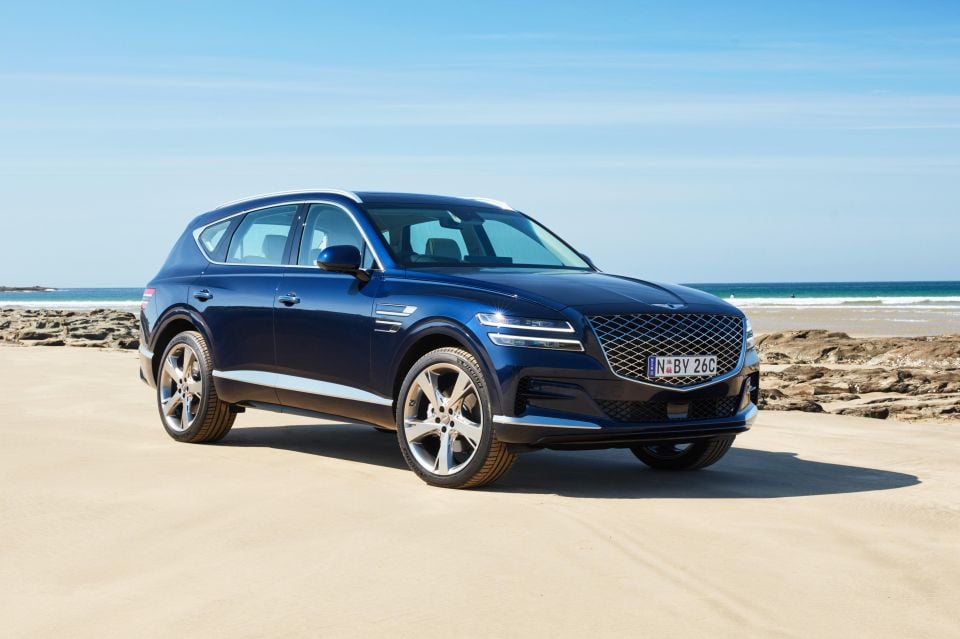
Click the images for the full gallery
MORE: Genesis GV80 news and reviews MORE: Volkswagen Touareg news and reviews
Share your thoughts with us in the comments below!
Scott Collie is an automotive journalist based in Melbourne, Australia. Scott studied journalism at RMIT University and, after a lifelong obsession with everything automotive, started covering the car industry shortly afterwards. He has a passion for travel, and is an avid Melbourne Demons supporter.
Share your thoughts and write a review of a car you own and get featured on CarExpert.


Ben Zachariah
18 Hours Ago
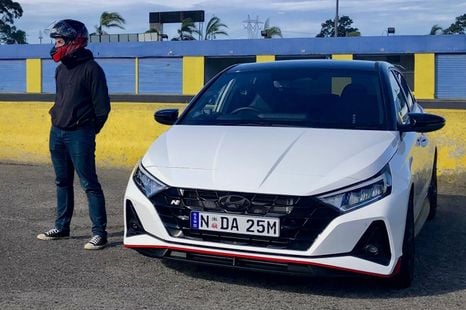

Max Davies
18 Hours Ago
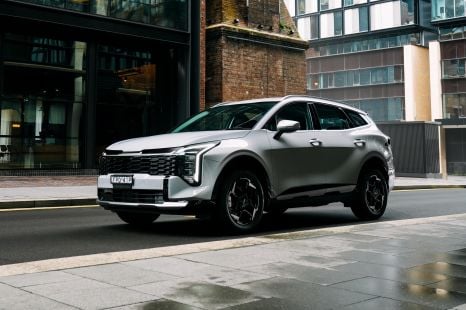

James Wong
18 Hours Ago
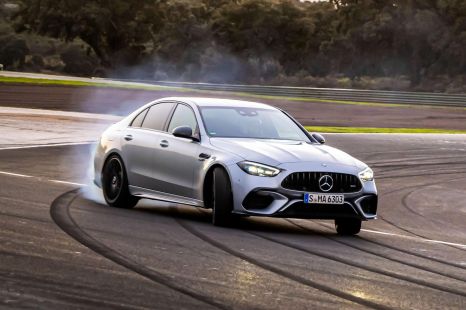

Derek Fung
19 Hours Ago
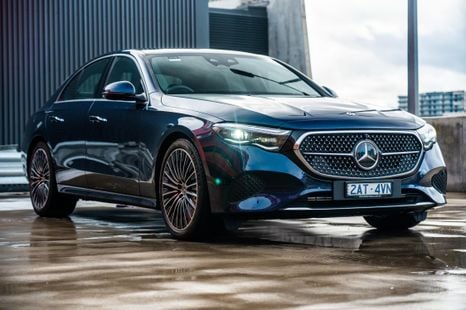

Josh Nevett
1 Day Ago
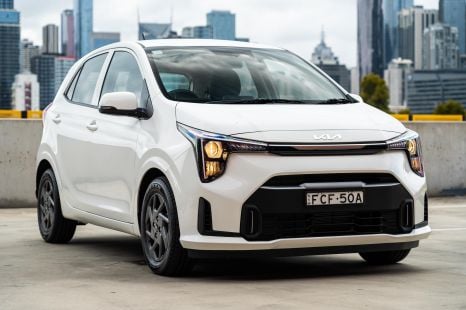

Josh Nevett
2 Days Ago